INDUSTRIAL ENGINEERING

Year in Review 2020-2021








This was a year unlike any other but I am thankful for the dedication of our faculty and staff, the support of our alumni, and the perseverance of our students. We remain committed to providing an excellent experience for the students we serve, while striving to keep everyone healthy and safe.
In the fall, John English transitioned from his role as Dean of the College of Engineering into the Vice Chancellor for Research and Innovation position. Shortly after, Kim Needy took over as Dean of the college, and is the first female Dean of the College of Engineering! It has been a pleasure to see these two Industrial Engineers in such important leadership roles for our college and university.
Our students continued to thrive despite the challenges brought forth by the pandemic. Each spring, the Arkansas Alumni Association honors 71 seniors with the Seniors of Significance distinction, and this year, two I.E. students made the list! I am extremely proud of Madeline Suellentrop and Conner Waybright for this well-deserved accomplishment! Madeline was also chosen as the Industrial Engineering Outstanding Senior and as the College of Engineering Outstanding Senior. Coleman Warren also had a banner year! He was selected as a Harry S. Truman Scholar, a distinction given to just 62 students from more than 845 applicants from 328 institutions. Along with this, Coleman was also elected as President of the University of Arkansas Associated Student Government.
As you will see throughout this annual review, we are making great strides with regard to research and education. Our Industrial Engineering program is home to just over 210 undergraduates, 45 graduate students, and more than 750 students combined between our Operations Management program, Engineering Management program and Graduate Certificates in Project Management, Lean Six Sigma, and Homeland Security. Decision Day was held virtually this spring and we welcomed 42 new students to the I.E. program. We look forward to being a part of their educational journey to become great industrial engineers!
Many of our conferences were held virtually this past year, but our faculty’s accolades were recognized all the same. One of INFORMS most prestigious honors was awarded to Dr. Greg Parnell. The J. Steinhardt Prize is a lifetime achievement award presented for outstanding contributions to Military Operations Research. Dr. Manuel Rossetti and Dr. Chase Rainwater received the Innovations in Education Award at the 2021 IISE Conference. This award recognizes faculty members who demonstrate outstanding creativity in instructional approaches or curriculum organization. Throughout this report, you will read more about our faculty’s research endeavors, awards, and accomplishments.
We are anticipating a great academic year as we continue to forge ahead in our new normal. I hope you enjoy this report and if you are ever in Fayetteville, be sure to stop by to say hello!

All my best,

 Edward A. Pohl, Ph.D. Department Head and 21st Century Professor of Industrial Engineering
Edward A. Pohl, Ph.D. Department Head and 21st Century Professor of Industrial Engineering
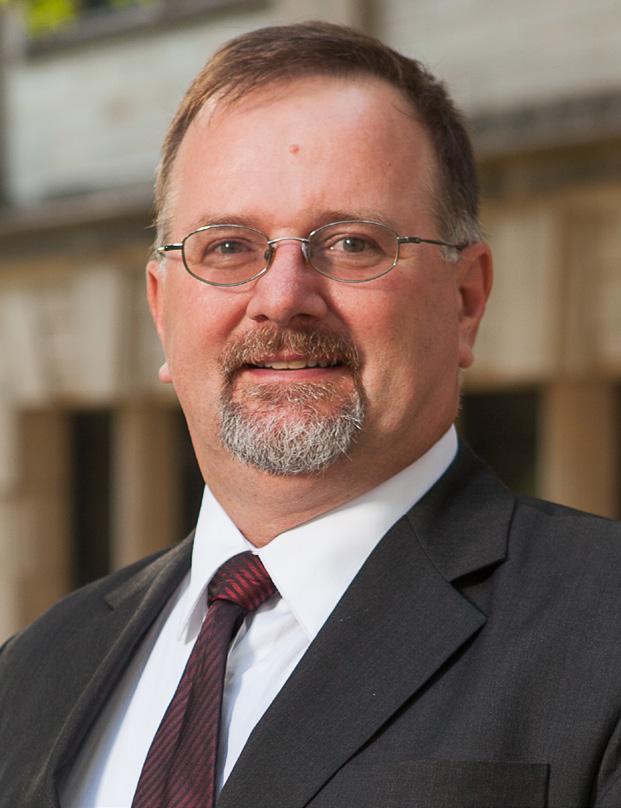
Energy plays a vital role in our daily lives as it used for transportation, heating, powering equipment, and providing electricity. About 80% of the energy used in the United States today is generated using non-renewable sources, such as, oil, coal, and natural gas. The increased consumption of fossil fuels over several decades has been identified by scientists as the primary cause of global climate change, air and water pollution, and acid rain. The industrial engineering community has contributed to finding solutions to these environmental issues by developing tools to design sustainable energy systems, improve energy efficiency in manufacturing, reduce greenhouse gas (GHG) emissions in supply chain, etc.
The research of Sandra Ekşioğlu, Hefley Professor in Logistics and Entrepreneurship, is focused on designing efficient systems for bioenergy generation. Her research team has developed mathematical models to design and manage biomass supply chain; to evaluate costs and GHG emissions from biomass cofiring; and to evaluate economic and environmental impacts of renewable energy policies.
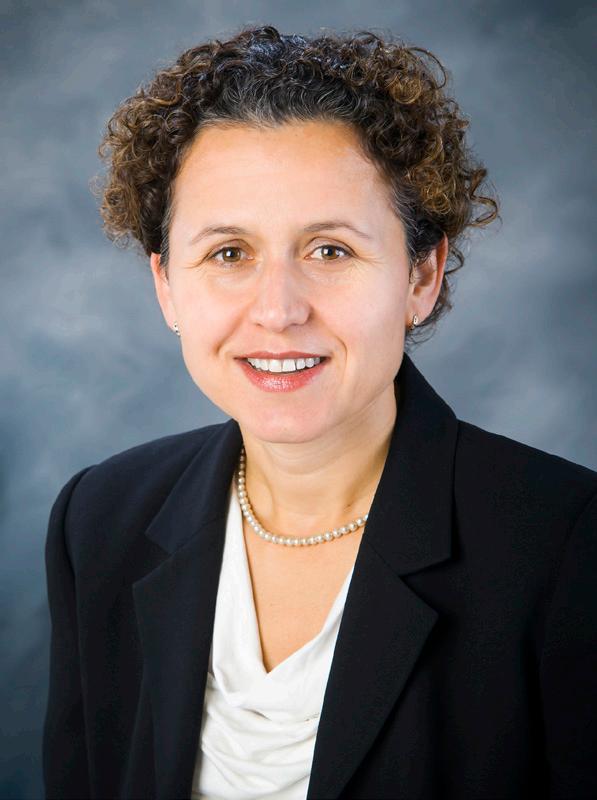
More recently, Ekşioğlu’s research team; which consists of faculty members and students from University of Arkansas, Clemson University, University of Texas at San Antonio, and researchers from the Idaho National Laboratory (INL), is working on developing analytical models to design a reliable and efficient system for biomass processing in a biorefinery. This research is sponsored by the Energy Efficiency and Renewable Energy program of United States Department of Energy. The work is motivated by the inefficiencies observed in bulk solids handling, and material flows through the biomass processing system. These inefficiencies are due to the stochastic nature of biomass characteristics, such as moisture and ash content, which lead to variations of particle size, shape and density of processed biomass. Oversized particles and ash plug air locks and pneumatic transfer lines and cause low/unreliable on-stream time of equipment and low utilization efficiency of the reactor.
The research team, which consists of civil and industrial engineers, developed a discrete element method (DEM)
model and a stochastic program (SP). The DEM is a computational model that simulates the mechanical and flow behavior of biomass at the equipment level, given biomass characteristics and equipment design. The results from these simulations are used to develop functional relationships among biomass characteristics, operating conditions of equipment, and biomass flow. These functional relationships are then incorporated into the SP model that identifies system design, inventory level, and operating conditions of equipment to ensure a continuous feeding and high utilization of the reactor. The models are developed using historical data from INL’s process development unit (PDU), a full-size, fully integrated, feedstock preprocessing system. The outcomes of this research are currently being evaluated via experimentation at the PDU. The proposed system is expected to reduce processing time by 20% to 30% and reduce the maximum inventory 3 to 4 times as compared to current practices of PDU.

Large-scale implementation of the proposed model has the potential to revolutionize the bioenergy industry if supported by Radio Frequency Identification technology, sensing and real time monitoring of material attributes, automated material handling equipment, and automated process control.
Biomass and Bioenergy and Optimization Letters. Manuscripts have been submitted for publication in the following journals IEEE Transactions on Automation Science and Engineering, IJPR, and Energy.

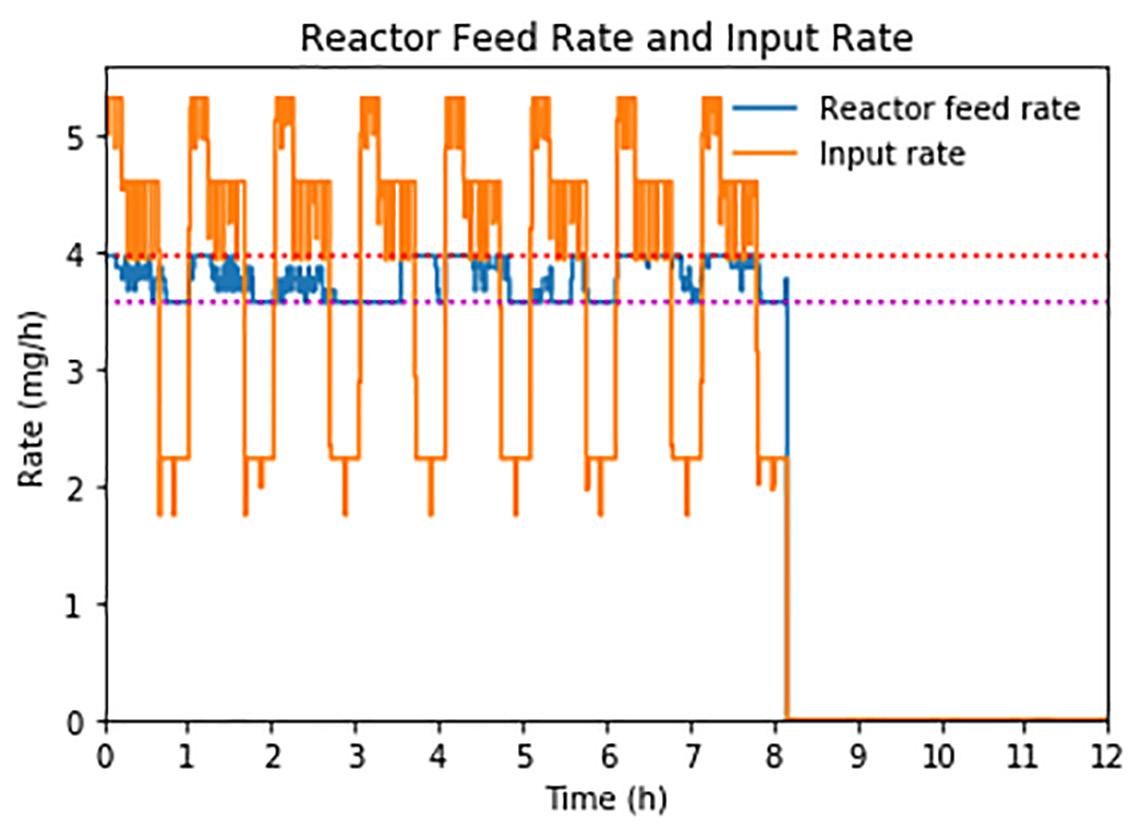



 The proposed feedback loop control for biomass blending.
Performance evaluation of the proposed system design and process control.
The proposed feedback loop control for biomass blending.
Performance evaluation of the proposed system design and process control.

Navigation of unmanned aerial vehicles (UAVs) typically relies on a combination of Inertial Measurement Units (IMUs) and reference to the Global Navigation Satellite System (GNSS). Navigation by GNSS, however, is not always reliable, due to various causes both natural (reflection and blockage from objects, technical fault, inclement weather) and artificial (GPS spoofing and denial). In such GPS-denied situations, it is desirable to have additional methods for aerial geolocalization.
Chase Rainwater, professor and doctoral student, Winthrop Harvey, have teamed with Jack Cothren, professor and director of the University of Arkansas Center for Advanced Spatial Technologies, to explore alternative methods that make use of machine learning-based approaches implemented with high performance computing resources onboard UAVs.
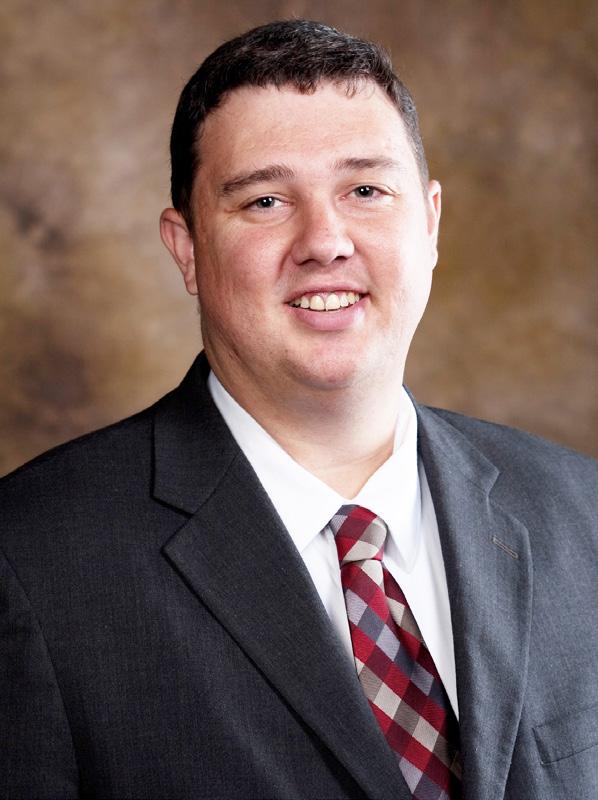
One such method is visual geo-localization, where aircraft use their ground facing cameras to localize and navigate. The state-of-the-art in many ground level image processing tasks, involve the use of Convolutional Neural Networks (CNNs). The team has explored how effectively a modern CNN designed for visual classification can be applied to the problem of
Absolute Visual Geolocalization (AVL), otherwise referred to as localization without a prior location estimate.
The team’s efforts have resulted in a an Xception based architecture trained using a ~1000km2 section of Washington County, Arkansas to directly regress latitude and longitude from images from different orthorectified high-altitude survey flights. It achieves average localization accuracy on unseen image sets over the same region from different years and seasons with as low as 115 meters average error, which localizes to .004% of the training area, or about 8% of the width of the 1.5x1.5km input image. This demonstrates that CNNs are expressive enough to encode robust landscape information for geo-localization over large geographic areas.
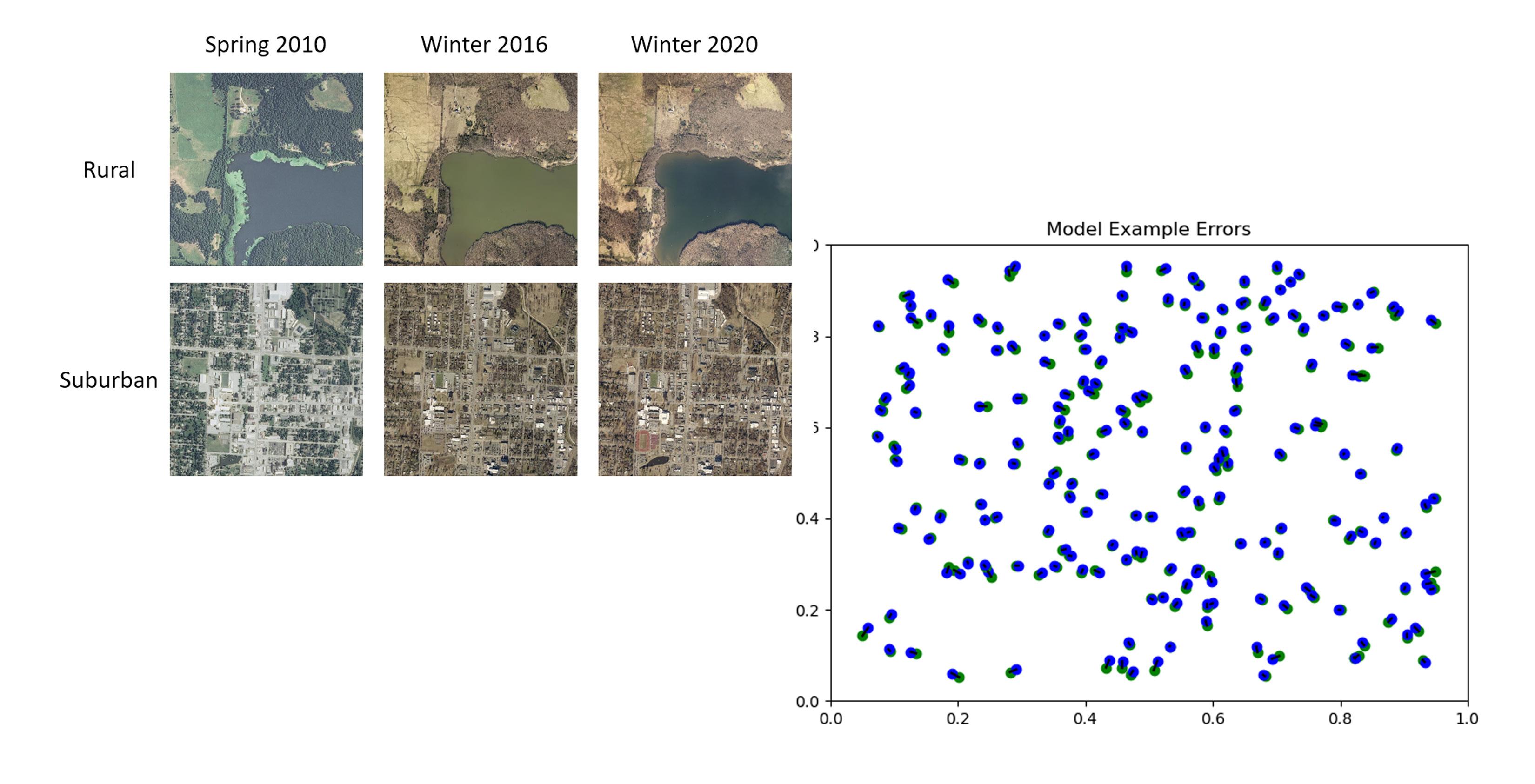
Despite the recent advent in research and technologies of big data, transaction data, although rich and detailed, is still currently underutilized.


Transaction data can be broadly defined as a sequence of information exchange or activities recorded at different and non-periodic time intervals. The complexity and unstructured nature of transaction data have made it challenging to extract information or insights to make decisions for individual entities or generate statistics to describe the stylized facts about the entire population. In health care, medical records, clinical data, and insurance claims data provide a sequence of healthcare events for individual patients, detailing all medicalrelated activities ranging from diagnosis to treatment history of the patient. It remains a challenge to effectively identify and characterize important features related to the problem of interest and fully take advantage of the temporal sequence of transaction data for decision making. Associate Professor, Shengfan Zhang and her students are currently investigating modeling frameworks of utilizing medical, clinical, and claims transaction data to improve the prediction and decision making in disease monitoring and management.
Zhang’s doctoral student, Maryam Alimohammadi, has developed a prediction framework based on machine learning models to predict the outcomes of invasive mechanical ventilation in ICU and to decide when to stop ventilation, considering both time-independent and time-dependent variables. The results of this research provide insights on the most informative clinical observation windows for close monitoring of patients, and on the possible time to stop ventilation to help reduce ventilation overuse. This will help both in the management of limited resources of ventilators and in the prevention of the side effects of prolonged mechanical ventilation. Currently, Maryam is also investigating a real-time predictive intelligence framework to monitor opioid prescription, and predict the risk behaviors in opioid users. Her research is supported by DART (“Data Analytics that are Robust and Trusted: From Smart Curation to Socially Award Decision Making”), an NSF EPSCoR Track-1 grant.
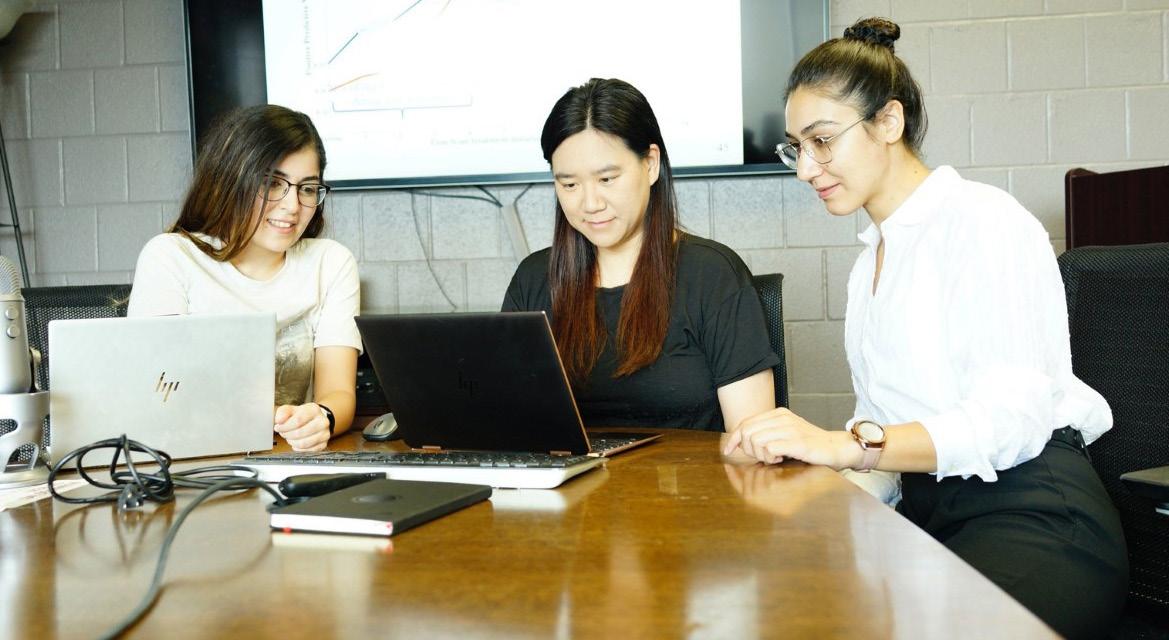
Another doctoral student, Maryam Kheirandish, has developed a dynamic prediction model that integrates a landmark modeling framework and machine learning algorithms to predict treatment outcomes of tuberculosis (TB) patients. The model not only helps identify high-risk TB patients whose treatment is not predicted as effective, or leading to cure using the WHO definition, it also determines the importance of laboratory tests at different time periods. Adding more layers of information through follow-up laboratory tests improves the accuracy and power to predict TB treatment outcomes. Currently, Maryam is also investigating new models and algorithms to address uncertainty in laboratory test results. Her research is supported in part by an NIH grant and an NSF Track-2 grant.

The Department of Industrial Engineering offered a new graduate program in fall 2020. The Master of Science in Operations Analytics is open to students interested in leveraging data to make organizations run more efficiently. Chase Rainwater, professor and associate department head, is the inaugural director of the program.
Geared for students from both engineering and non-engineering backgrounds. Any student with an undergraduate degree from an ABET-accredited industrial engineering program should not have any pre-requisite courses to complete.
David Humphrey, vice president-investor relations with ArcBest, said the program would position graduates to improve business processes by analyzing data.
“More and more at ArcBest, data related to every element of our company is abundantly available. For us to be successful, it is essential that we have the ability to effectively analyze that data in order to refine processes that improve our customers’ experience and profitably grow our company. We are excited to know that the new University of Arkansas Master of Science in Operations Analytics graduate program will develop the important analytical skills that engineering graduates need in data management and modeling.”
The masters program provides students with the professional and intellectual growth needed to become managers and leaders in operations analytics. Students gain the core operations analytics and quantitative modeling skills to better manage, control, and improve the operations of enterprise or public-sector organizations.

Through coursework, students develop knowledge of the principles and practices of analytics modeling methods, such as optimization, statistical modeling, machine learning, simulation, and computing methods, as they apply to the strategic, operational and tactical control of operations.
“Data-driven insights directly impact how industries produce a product or service a customer. Continuing education in a field driven by analytics and engineering will only enhance student’s critical thinking and data visualization skills. Operational Analytics knowledge will make valuable contributions in turning a company’s vision into reality,” said Karen Jewell, vice president engineering and technology with J.B. Hunt.
For students with a degree other than an ABET-accredited industrial engineering degree, prerequisite courses may be required and are available through the industrial engineering program.
Rainwater commented, “We are excited to offer students a flexible alternative to gaining graduate-level skills in operations analytics. The new degree program benefits from the long-standing faculty expertise in this area and is something we hope can propell students into analytics careers that will serve to fill the demand we see from numerous companies.”
• Develop descriptive, predictive and prescriptive mathematical and statistical models and to apply those models through computational methods to problems of controlling and improving enterprise operations.
• Use foundational knowledge and apply critical thinking skills to problem identification, problem-solving, and decisionmaking, within the context of controlling and improving enterprise operations.
• Adapt analytics concepts to interpret and communicate findings and implications to senior decision makers.
• Use information systems, statistics and computing principles and apply state-of-the-art technologies for data representation, data retrieval, data manipulation, computational analytics, data analysis, visualization as they apply analytics within enterprise operations.

• Program graduates will be prepared for occupations as: General and operations managers, Operations research analysts, and Management analysts.
For more information contact: opan@uark.edu or visit: operations-analytics.uark.edu
Several University of Arkansas faculty members were featured on a podcast from the Institute of Industrial and Systems Engineers for their work during the fall and spring to adapt to COVID-19.

The Coronavirus Pandemic caused significant changes to the way students and faculty accessed classes in the spring of 2020. Things happened quickly and created challenges for universities worldwide. Faculty, staff and students had to make the modifications rapidly, effectively, keeping students and faculty members engaged and yet remote.

The Institute of Industrial and Systems Engineers podcast Problem Solved, sat down with leaders from the Industrial Engineering profession including: Kim LaScola Needy, dean of the Graduate School and International Education; Manuel Rossetti, professor; and Eileen Van Aken, head of the Grado Department of Industrial and Systems Engineering at Virginia Tech.

Ed Pohl, head of the Department of Industrial Engineering, said working through uncertainty is a skillset industrial engineers use daily.
“These obstacles presented challenges for the problemsolving skills of industrial engineers but they found innovative ways to teach, learn and stay connected,” he said. “They are uniquely situated to assist with the transition and they thrive on making things better. Creating new and innovative processes to meet the challenges faced by organizations of all types is what we do.”
Faculty members discussed how instructors and students adjusted to remote learning challenges during the pandemic shutdown last spring, along with the innovative lessons they applied to the start of the fall semester.
Kim Needy, dean of the Graduate School and International Education, has been named to a one-year appointment as Dean of the College of Engineering. Needy replaced John English, who assumed the role of Vice Chancellor for Research and Innovation in November 2020. Needy is the first female to lead the College of Engineering as Dean.

“Dr. Needy’s administrative experience and engineering expertise make her a perfect fit to lead the College of Engineering,” said Charles Robinson, interim chancellor.
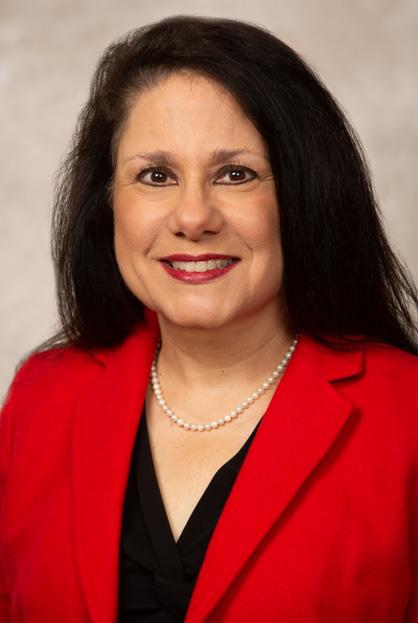
Needy is a national leader in the field of industrial engineering and led the Graduate School and International Education (GSIE), since 2014, including a one-year interim appointment as Vice Provost for Research and Innovation. She has coauthored more than 150 papers and is a co-author of the textbook, Fundamentals of Engineering Economic Analysis She has been awarded 38 different research grants from various agencies including the National Science Foundation, Department of Education and Construction Industry Institute, and has held various leadership roles in professional societies including President of the Conference of Southern Graduate Schools. Under Needy’s leadership, GSIE’s reputation has grown regionally and nationally. * * * *
As we all began to experience the pandemic in March of 2020, there were many questions about how to continue the semester and do it remotely. This question was answered by Caroline Beam, teaching assistant professor in the Operations Management and Engineering Management programs. Beam was asked to produce a video by the Institute for Operations Research and Management Science (INFORMS), based on a talk she gave at the annual
conference in 2019. In the presentation: Moving Online in a Weekend, Caroline covered the following topics:
• What technology do I need, and in what order?
• What is my quickie to-do list?
• How do I manage student communications?
• How do I ensure that the delivery is effective?
• How do I write my instructions to students to reduce questions about homework submission?
• Homework
• Lectures
• Exams & Online Proctoring
Who knew how urgent the need would become? You can find a recording of her presentation on YouTube: “Moving Online in a Weekend: Distance Education in the Nick of Time”
Professor, Burak Ekşioğlu, stepped into the role of Director of the Center for Excellence in Logistics and Distribution (CELDi) in September of 2020. Manuel Rossetti had stepped down from the role to begin as Director of the new Data Science Program.
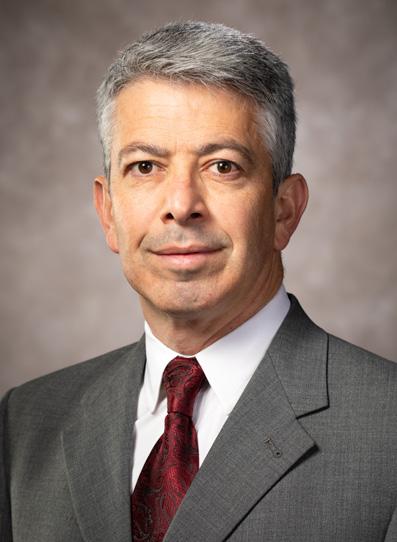

CELDi is a consortium of six universities including the University of Arkansas, Virginia Tech, the University of Missouri, Kansas State University, Oklahoma State University and Oregon State University. The mission is to enable member organizations to achieve logistics and distribution excellence by delivering meaningful, innovative and implementable solutions that provide a return on investment.
Research activities, graduate and undergraduate course offerings, professional development and continuing education opportunities combine to form the foundation and structure for educating the next generation of engineers in logistics and distribution. Each of the academic partners bring complementary expertise to the organization.
The NSF I/UCRC program fosters partnerships between universities and industry, featuring high-quality, industrially relevant fundamental research, strong industrial support of, and collaboration in, research and education. Over the last
18 years, CELDi has built a national reputation based on the I/UCRC model within the field of engineering logistics and distribution.
Professor, Sandra Ekşioğlu was elected as the President (20212022) of the Energy Systems Division. The division’s mission is to support members by fostering networks, offering programs and maintaining resources that represent their core competencies and/or areas of specialized practice.
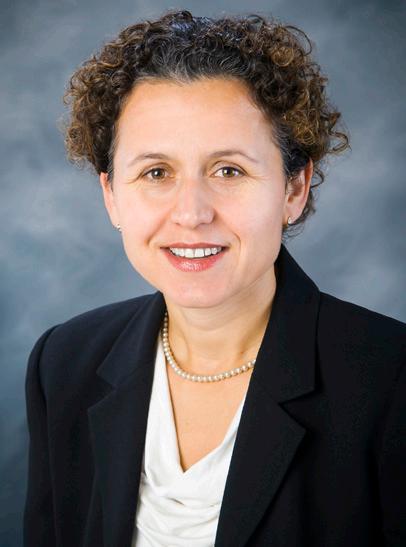
Xiao Liu, assistant professor was awarded funding to collaborate with IBM to harness big data aimed at improving how intelligent food-borne outbreak investigations are handled. He received the award through the National Science Foundation’s Established Program to Stimulate Competitive Research (EPSCoR). Liu will partner with the Industrial and Applied Genomics team at IBM’s Almaden Research Center in San Jose, California.
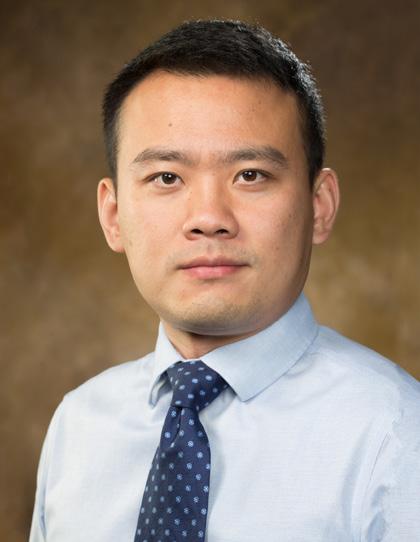
The research focuses on inventing new statistical methodologies to handle huge data sets related to foodborne outbreaks. His project will test and validate advanced statistical models to accelerate food-borne outbreak investigations.
Understanding the complex interactions between different data points in a food-borne outbreak are key to help prevent or minimize future issues, Liu said.
“Successfully addressing this challenge enables us to understand why critical events happened in the past, when events of interest will recur in the future, and how one can optimize the event processes through proactive interventions,” he said.
The project is titled “RII Track-4: Harnessing Big Event Data with Heterogeneous Feature: Intelligent Food-Borne Outbreak Investigations and Beyond.”


Liu said the project addresses several critical national interests.
“This award will advance the nation’s food safety, cyber security, and economic welfare by innovating new statistical learning methodologies that enhance the critical capabilities of harnessing big event data with heterogeneous feature information,” he said.
And, Liu said, “Because the research will involve crossdisciplinary collaborators, the final product can be used to analyze events in a variety of sectors, including food safety, cyber security, reliability, online retail, transportation safety, disaster, and extreme weather events.” * * * *
Liu is the President-elect (2021-2022) of the Data Analytics and Information Systems division of IISE, he was elected at the conference held in May of 2021. * * * *
Heather Nachtmann, senior associate vice chancellor for research and innovation, was re-named Associate Dean for Research in the College of Engineering.
“Heather was the first to serve in this role and served admirably for more than five years,” said Dean Kim Needy. “Her contributions were numerous, and we look forward to having her back to lead the college’s research mission at this critical juncture in our university’s history.”
As Senior Associate Vice Chancellor for Research and Innovation since November 2020, Nachtmann made important contributions to the Division of Research and Innovation. She helped improve operational efficiency and supported an organizational restructuring and relocation for the division. In addition, she worked with the Project One team to improve the principal investigator interface in Workday and led the search for the incoming Director of
Sponsored Programs. She also helped create the new Institute for Integrative and Innovative Research.
Nachtmann has also been named the next Editor-in-Chief of The Engineering Economist journal. She began her four-year term in January 2021 and takes over for current editor Sarah Ryan of Iowa State University. Nachtmann currently serves as a Cost Estimation and Accounting Area Editor for the Journal.

Haitao Liao, professor and the John and Mary Lib White Endowed Systems Integration Chair and Associate Dean for Research, Heather Nachtmann, have developed a tool to help public and private sector leaders optimize freight movement across different modes of transportation.
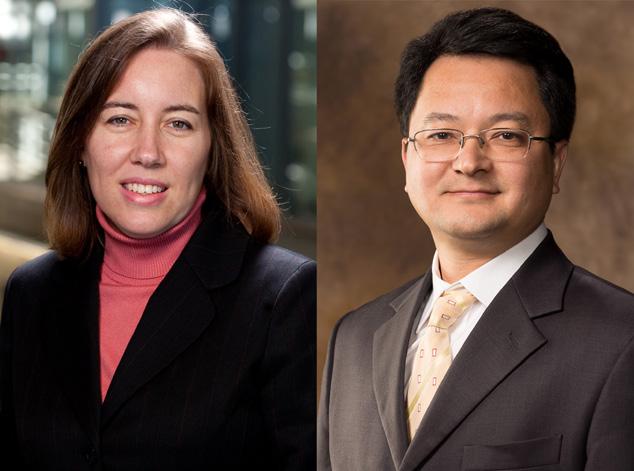
The customizable tool integrates a variety of data sources related to the design and operation of ports, locks, dams and ground transportation, and spatiotemporal models, to help decision-makers understand how best to transport freight across the United States.
The project was funded by a grant from the National Science Foundation’s EAGER program. EAGER stands for “EArlyconcept Grants for Exploratory Research.”
Liao said the tool’s multifaceted approach is critical to support modern planning needs as well as disaster relief and recovery.
“Access to data on the design and operation of interdependent critical infrastructures, known as ICIs, is now recognized as essential for fostering new data analytics, design and decision-support tools,” he said. “This project has created and made available synthetic and simulated data on ICIs by developing new data creation techniques and model-based approaches to simulating ICIs and human cognition and behavior with ICIs.”
The study also has broad implications for the nations’ commodity supply chains. Inland waterways in the United States are used to transport approximately 20 percent of America’s coal, 22 percent of U.S. petroleum products, and 60 percent of farm exports.
The study, titled “Data Simulation to Support Interdependence Modeling in Emergency Response and Multimodal Transportation Networks,” took place as a project of the MackBlackwell Transportation Center.

He is the recipient of numerous awards, including the Decision Analysis Society Frank P. Ramsey Medal, the MORS Vance R. Wanner Award, the U.S. Army Dr. Wilbur B. Payne Memorial Award for Excellence in Analysis, the MORS Clayton Thomas Laureate, two INFORMS Koopman Prizes, and the MORS Rist Prize.
Professor of Practice, Greg Parnell, received a lifetime achievement award for his contributions to the field of Military Operations Research.
Parnell, who serves as director of the Master of Science in Operations and Master of Science in Engineering Management programs, was selected as the 2020 recipient of the J. Steinhardt Prize from the Institute for Operations Research and the Management Sciences. The J. Steinhardt Prize is sponsored by the Center for Naval Analyses Corporation and is awarded for outstanding contributions to Military Operations Research.
His research focuses on decision and risk analysis, and systems engineering. He was lead editor of Decision Making for Systems Engineering and Management, (2nd Ed, Wiley and Sons, 2011), lead author of the Handbook of Decision Analysis, Wiley Operations Research/ Management Science Series (Wiley and Sons, 2013), and editor of Trade-off Analytics: Defining and Exploring the Tradespace, (Wiley and Sons, 2017).
Parnell is a fellow of the International Council for Systems Engineering, the Institute for Operations Research/ Management Science, the Society for Decision Professionals, and the Military Operations Research Society.
Parnell is Professor Emeritus at the U.S. Military Academy at West Point. Previously, he served as a Professor of Systems Engineering at West Point, a Distinguished Visiting Professor at the U.S. Air Force Academy, an Associate Professor at Virginia Commonwealth University, and a Department Head at the Air Force Institute of Technology.
Parnell was also the recipient of the 2021 Joint ASEE SED/ INCOSE Outstanding Systems Engineering Educator Award.
Ed Pohl, head of the Department of Industrial Engineering, stated, “With more than 30 years of contributions to and leadership in systems engineering education, it only seems appropriate that Dr. Parnell is recognized with these awards. Greg’s distinguished career in systems engineering education has more than qualified him for the award.”
Manuel Rossetti, university professor, was the recipient of the 2020 Institute of Institute of Industrial and Systems Engineers’ (IISE) Modeling and Simulation Division Teaching Award.
The award recognizes excellence in teaching modeling and simulation courses. Nominees are evaluated on their leadership, course design and content quality, applied learning, innovation and student satisfaction.
Rossetti has been a member of IISE since 1984, and was elected as a fellow of the organization in 2012. He has been with the Industrial Engineering Department since 1999.
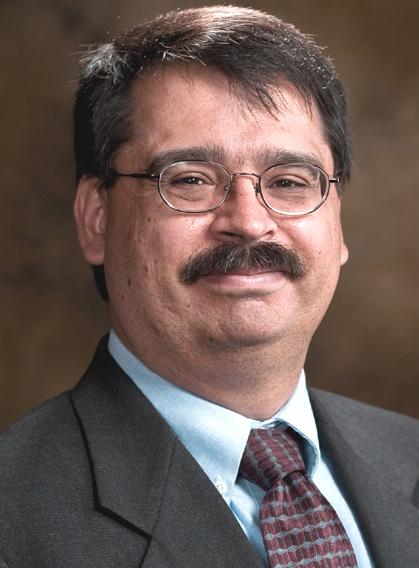
Rossetti said the award was humbling. “I am honored to be recognized by the IISE and my colleagues as an outstanding
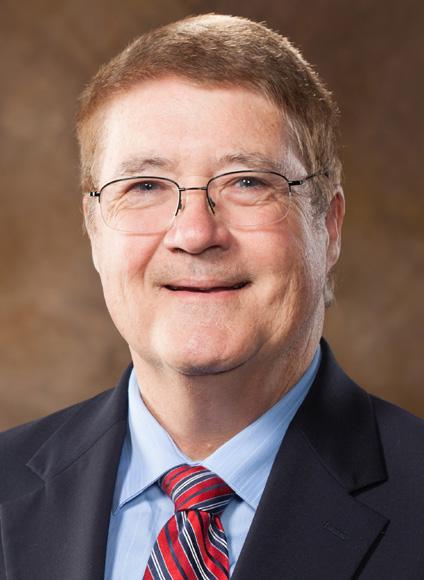
teacher,” he said. “I am humbled to stand on the shoulders of those who taught me and encouraged my interests in simulation modeling and analysis.”
Rossetti has received the Charles and Nadine Baum Teaching Award and was elected into the University of Arkansas Teaching Academy in 2013. * * * *
Rossetti has been named the inaugural Director of the new Undergraduate Data Science Program. The program is the first of its kind at the University of Arkansas, providing students the chance to take courses from faculty in three colleges as they complete the curriculum. Colleges include: the College of Engineering, the Fulbright College of Arts and Sciences and the Sam M. Walton College of Business. Students will take a common set of introductory courses to build the foundations of a data science education and will choose one of ten specialty concentrations during their junior year. Karl D. Schubert, professor of practice, was named associate director for the program.
More details are available at datascience.uark.edu. * * * *


Manuel Rossetti, university professor and Chase Rainwater, professor, were recognized at the Institute of Industrial and Systems Engineers (IISE) Annual Conference & Expo with the Innovations in Education Award, based on their work in designing, developing, and implementing a required, twosemester course sequence in computing for students pursuing the Bachelor of Science in Industrial Engineering (BSIE) at the University of Arkansas.
Associate professor, Shengfan Zhang, received a grant from the Chancellor’s Innovation and Collaboration Fund. The Chancellor’s Fund has invested up to $1 million annually in seed funding to faculty pursuing interdisciplinary studies in the University’s signature research areas. The three signature areas identified by the U of A are Advancing the Data Revolution, Improving Human Health and Community Vibrancy, and Innovating a Resilient and Sustainable Future.
Her research team includes Amir Mian, assistant professor of Pediatrics at UAMS; and Lu Zhang, assistant professor of Computer Science and Computer Engineering. Their project will explore ways to improve outcomes of hospitalized pediatric patients using artificial intelligence technologies.
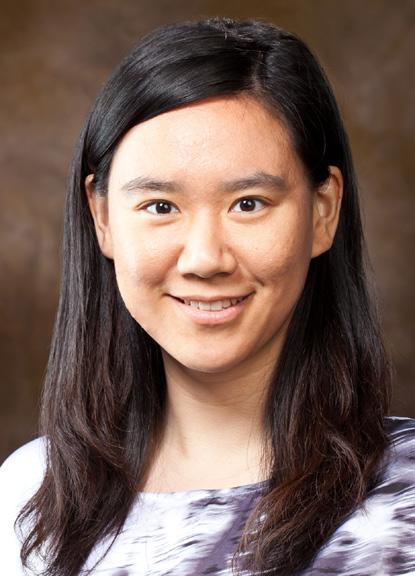

She was also announced as the 2021-2022 John L. Imhoff Chair of Industrial Engineering. The announcement came in March 2021. The John L. Imhoff Endowed Chair was established in 1989 through the generous donations of Dr. Imhoff’s family, former students, friends and colleagues. * * * *
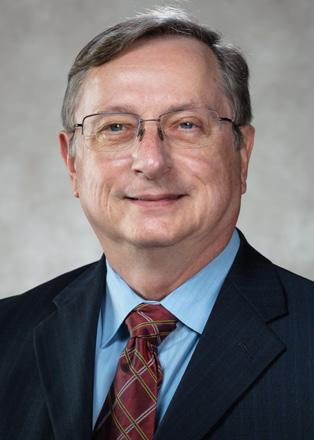
Shengfan Zhang, associate professor and Eric Specking, assistant dean for Recruitment and Retention, received a grant from the National Science Foundation to establish the first ever Research Experience for Teachers site in Arkansas.
The “Arkansas Data Analytics Teacher Alliance program,” known as AR-DATA, will provide thirty 9th-12th grade mathematics, computer science and pre-engineering teachers with transformative research experiences that are thematically
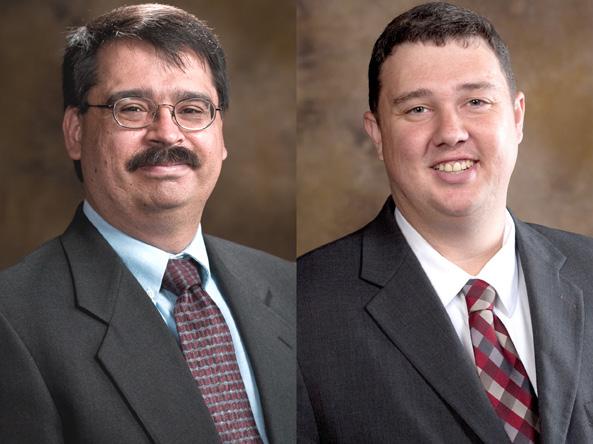
centered on data analytics with engineering applications aimed at smart and connected health, infrastructure and community.

The mission of the program is to promote research-driven high school analytics education, reaching underrepresented students and those in rural areas of Arkansas. AR-DATA will provide professional development opportunities for teachers to attain new knowledge in engineering, and analytics.
“The AR-DATA RET program aims to help prepare 9th12th grade students for higher education in engineering as well as the urgent needs in analytics workforce to solve engineering problems in the state,” Zhang said. “The ARDATA RET program also aims to effectively integrate research, real world applications and classroom teaching through strong partnership and active engagement among university professors, graduate student researchers, industry mentors and public-school administrators and teachers.”
The College of Engineering held the annual spring faculty and staff meeting virtually in April 2021. Members of the college were recognized for their contributions to the success of the college. Two industrial engineering faculty members were recognized for $1M plus research awards, Associate Dean for Research, Heather Nachtmann, and Professor, Chase Rainwater.
Those recognized for outstanding teaching, research, service to students, and staff excellence from the industrial engineering department included:
• For teaching: Ashlea Milburn, associate professor;
• For research: Xiao Liu, assistant professor;
• For service to students: Tish Pohl, teaching associate professor;
• Staff Excellence was awarded to Sandy Sehon, fiscal support supervisor.
Additionally, Kim Needy, Dean of the College of Engineering announced the following Dean’s Excellence Awards. Sandra
Ekşioğlu, Hefley Professor in Logistics and Entrepreneurship was the recipient of the John L. Imhoff Outstanding Teaching Award and Haitao Liao received the John L. Imhoff Outstanding Research Award.
Caroline Beam
• INFORMS Edelman Award Committee, Member, 2018-Present
• INFORMS Edelman Award Committee, Chair 2020-2021
Richard Cassady
• Journal of Risk & Reliability, Associate Editor, 2005-Present
• FIRST Robotics, Volunteer Mentor & Coach, 2011-Present
W. Art Chaovalitwongse
• IISE Transactions on Healthcare & Systems Engineering, Area Editor, 2020
• OR in Medicine & Healthcare, Annals of Operations Research, Area Editor, 2020
Justin Chimka
• Quality Engineering, Editorial Board, Member, 2019-Present
• Stochastics and Quality Control, Editorial Board, Member, 2014-Present
Burak Ekşioğlu
• IISE Annual Conference, Session Chair, 2005-Present
• INFORMS Annual Meeting, Session Chair, 2005-Present
• INFORMS Prize for Teaching of OR/MS Practice Committee, Member, 2020-2022
• International Program Committee of IN4PL, Member, 2020-2021
• IISE Transactions, Associate Editor, 2017-Present
• International Journal of Engineering Business Management, Editorial Board, Member, 2013-Present
• The Scientific World Journal, Editorial Board, Member, 2013-Present
Sandra Ekşioğlu
• ASEE, Women in Engineering Division, Past Chair, 20202022
• ASEE, Women in Engineering Division, Chair, 2018-2020
• Freight Transportation and Logistics, INFORMS, Chair, 2019-2021
• Energy, National Resources, and the Environment, INFORMS, President-Elect, 2020-2021
• Energy Systems Division of IISEE, President-Elect, 20202021
• INFORMS Combined Colloquia, Chair, 2019-2020
• IISEE Pritsker Doctoral Dissertation Award Committee, Chair, 2018-2020
• IISEE Supply Chain and Logistics, Best Paper Award Committee, Member, October 2020 – November 2020
• ASEE PIC IV Best Paper Award Committee, Member, May 2020 – June 2020
• IISEE Energy System Track, Best Paper Award Committee, Member, April 20 – May 2020
• Journal of Cleaner Production, Editorial Board, Member, 2018-Present
• Optimization Letters, Editorial Board, Member, 2018-Present
• Journal of Energy Systems, Editorial Board, Member, 2013-Present
Ralph Gay
• American Society for Engineering Management, Board of Directors, 2020
• American Society for Engineering Management, South Central Regional Director, 2020
Haitao Liao
• INFORMS Sections, Subdivisions Council Committee, Member, At-Large Representative, 20202021
• International Journal of Reliability and Safety, Associate Editor, 2020-Present
• IISE Transactions on Quality and Reliability, Associate Editor, 2017-Present
• RAMS, Associate Editor, 2019-2022
• IMA Journal of Management Mathematics, Guest Editor, 2019-2020
• Sustainable and Resilient Infrastructure, Guest Editor, 2019-2020

• Department of Energy Nuclear Engineering University Program, Proposal Reviewer/Panelist, 2020
• National Science Foundation, Proposal Reviewer/Panelist, 2020
Xiao Liu
• IISE Annual Conference, Track Co-Chair, 2020-2021
• IISE Golomski Award Committee, Member, 2020
• IISE Pritsker Award Committee, Member, 2020
• IISE Division of Analytics and Information Systems Board, Director, 2019-2021

• INFORMS Quality, Statistics, & Reliability Section, Council Member, 2018-2020
• IISE Division of Analytics and Information Systems, Best Paper Competition Committee, Chair, 2020
• INFORMS Quality, Statistics, & Reliability, International Committee, Chair, 2019-2020
• IEEE International Conference on Big Data Committee, Member, 2020-2021
• 34th AAAI Conference on Artificial Intelligence, Committee Member, 2020-2021
• INFORMS, QCRE, Best Student Paper Competition Committee, Member 2020
• IISEE 2020, Session Chair, 2020
• INFORMS, TB43, Session Chair, 2020
• INFORMS, TC43, Session Chair, 2020
• INFORMS, ThD45, Session Chair, 2020
• International Journal of Reliability, Quality, Safety Engineering, Editorial Board, Member, 2020-2021
• Quality and Reliability Engineering International, Editorial Board, Member, 2016-2021
Ashlea Milburn
• INFORMS Transactions on Education, Board Member, 2018-Present
• INFORMS Public Sector Operations Research Society, Secretary, 2019-2020
• INFORMS Annual Meeting, Session Chair, 2020
• INFORMS Transportation & Logistics Society Scientific Committee, Member, 2019-Present
• Healthcare Systems Engineering Alliance, Treasurer, 2014-Present
• INFORMS Transactions on Education, Associate Editor, 2018-Present
Heather Nachtmann
• Advisory Council for Transportation Research, Committee Member, 2009-Present
• ASEM, Best Dissertation Award Committee, Member, 2020
• Engineering Management Journal, Acting Managing Editor, 2020
• The Engineering Economist, Area Editor, 2004-2020
Kim Needy
• The Engineering Economist, Book Editor, 2004-2020
• Engineering Management Journal, Associate Editor, 2002-Present
• American Society for Engineering Education, Chair of Presidential Task Force for Graduate Education, 20192020
• Graduate Record Examination, Diversity, Equity, and Inclusion Committee, 2017-2021
• Conference of Southern Graduate Schools, Presidential Rotation, 2018-2021
• Council of Graduate Schools, Math, Physical Sciences, and Engineering Dissertation Award, Chair, 2020-2021
• Council of Graduate Schools, Affiliate Liaison Representative for the CSGS serving on the CGS Board, 2020
• United Way of Northwest Arkansas, Board of Directors, 2019-2021
Sarah Nurre Pinkley
• INFORMS Chapters/I Committee, Member, 2018-Present
• ISERC, Session Chair, 2019-2020
Greg Parnell
• INCOSE Se Vision 2035 Review Support Team, Committee Member, July 2020-Present
• INCOSE Professional Development Portal Task Team, Committee Member, April 2020-Present
• INCOSE Policy Management Committee, Member, March 2020-Present
• INCOSE Honors & Awards Committee, Member, February 2020-Present
• INCOSE Fellows Committee, Chair, January 2020-Present
• NASEM Committee on the Review of Bureau of Safety and Environmental Enforcement Offshore Oil and Gas Operations Inspection Program. National Academies of Science, Engineering, and Medicine, Committee Chair, 2018-Present
• INCOSE Decision Analysis Working Group, Co-Chair, 2017-Present
• INCOSE Corporate Advisory Board, Board of Advisors, 2014-Present
• INCOSE Academic Council, Committee Member, 2014-Present
• Body of Knowledge & Curriculum to Advance Systems Engineering, Committee Member, Editorial Committee, 2013-Present
• INCOSE Fellows Committee, Vice Chair, Jan 2018-Jan 2020
• Decision and Risk Analysis, Wiley Series in Operations Research and Management Science, Advisory Editor, 2012-Present
• Decision Analysis Journal, Editorial Board Member, 2009-Present
Ed Pohl
• Engineering Management Journal, Co-Editor, 2018-Present
• IEEE Transactions on Reliability, Associate Editor, 2014-Present
• IEEE Transaction on Engineering Management, Editorial Board, 2018-Present
• Journal of Military Operations Research, Editorial Board, 2002-Present
• Reliability and Maintainability Symposium, Board of Directors, 2014-Present
• Society of Reliability Engineers, Past President, 2020
• Systems Journal, Editorial Board, 2018-Present

• Journal of Risk and Reliability, Associate Editor, 2005-Present
• Quality Technology & Quantitative Management, Associate Editor, 2012-Present
• INFORMS Meeting Committee, Member, 2019-2021
• INFORMS Selects Committee, Member, 2014-Present
• ASEM Student Scholarship Committee, Member, 2018-Present
• ASEE John L. Imhoff Global Excellence Award Committee, Member, 2018-Present
• ASEE National Engineering Economy Teaching Excellence Award Committee, Member, 2017-Present
• IISE Innovations in Education Award Committee, Member, 2018-2020
Tish Pohl
• ASEE Industrial Engineering Division, Director, 2018-Present
• ASEE John L. Imhoff Award Committee, Chair, 20172020
Chase Rainwater
• IISE Operations Research Division, Past-President, 2019-Present
• Institute of Industrial and Systems Engineering ,Board of Trustees Scholarship Committee, Chair 2019-2020
• FIRST Robotics, Mentor & Coach, 2015-Present
Manuel Rossetti
• Winter Simulation Conference, Chairperson, 2020-Present
• Institute of Industrial Engineers, Fellow, 2013-Present
• SBIR Program, Information Technology Applications, NSF Panelist, 2006-Present
• Winter Simulation Conference, Session Chair, 2004-Present
• International Journal of Modeling and Simulation, Associate Editor, 2000-Present
• Journal of Defense Analytics and Logistics, Editorial Advisory Board, 2016-Present
• NSF SBIR Panel Reviewer, NSF, Panelist, 2020
Kelly Sullivan
• INFORMS Journal on Computing, Associate Editor, 2019-Present


• Operations Research Letters, Associate Editor, January 2016-December 2020
Shengfan Zhang
• IISE Annual Conference, Health Systems Track, Co-Chair, 2019-2020
• INFORMS Public Sector Operations Research, President,
2020
• INFORMS Committee on Diversity, Equity, & Inclusion, Member, 2019-Present
• DEI Cluster, INFORMS Annual Meeting, Cluster Co-Chair, 2019, 2020
• Health Systems, Area Editor, 2015-Present
• IISE Transactions on Healthcare Systems Engineering, Associate Editor, 2020-Present
During 2020-2021, the following research grants were active. The principal investigator is listed in bold
Chaovalitwongse, W. Art, National Science Foundation, $150,000, “NCS-FO: Collaborative Research: Relationship of Cortical Field Anatomy,” 2017-2021
Chimka, Justin, U.S. Department of Transportation, $113,358, “Learning from USACE open Data for Locks,” 2018-2020
Hernandez, S., and Justin Chimka, Arkansas State Police, $79,340, “Seat Belt, Motorcycle Helmet, & Child Restraint Survey Year 3,” 2019-2020
Hernandez, S. and Justin Chimka, Arkansas State Police, $79,340, “Seat Belt, Motorcycle Helmet, & Child Restraint Survey Year 4,” 2020-2021
Chimka, Justin, National Science Foundation, $21,411, “EPSCoR Track 1 Data Science,” 2020-2021
Ekşioğlu, Burak, Powering Forward, LLC, $24,221, “Hana Group Supply Chain Optimization,” 2021
Ekşioğlu, Burak, University of Arkansas Medical Sciences, $6,892, “Telehealth Covid-19 Broadband Pilot Evaluation,” 2021
Ekşioğlu, Sandra, Department of Energy, $460,846, “Intergrated Process Optimization for Biochemical Conversion,” 2018-2021
Hernandez, Sarah, and Sandra Ekşioğlu, Department of Transportation, $155,878, “A Policy and Infrastructure Evaluation Model of Commodity Flows through Inland Waterway Ports,” 20202022
Ham, Rich, National Safe Skies Alliance, $15,630, “Planning and Operational Security Guidance for Construction Projects at Airports,” 2020-2021
Liao, Haitao, Heather Nachtmann, and Xuan Shi, National Science Foundation, $200,000 “EAGER: SSDIM: Data Simulation for Interdependence Modeling,” 2017-2020

Liao, Haitao, National Science Foundation, $40,395, “EPSCoR Track 1 Data Science,” 2020-2021
Liu, Xiao, National Science Foundation, $399,907, “Integrating System Physics with Sensor Date for Health Prognostics of Complex Engineered Systems,” 2019-2022
Liu, Xiao, National Science Foundation, $43,846, “Integrating System Physics with Sensor Date for Health Prognostics of Complex Engineered Systems- Supplement for Internship,” 2020-2022
Liu, Xiao, National Science Foundation, $238,173, “RII Track-4: Harnessing Big Event Data with Heterogeneous Features: Intelligent Food-Borne Outbreak Investigations and Beyond,” 2016-2021
Liu, Xiao, University of Arkansas, $23,860, “Spatio-Temporal Big Data,” 2019-2020
Liu, Xiao, University of Arkansas, $12,000, “Industry Partner Seed Grant,” 2020-2021
Liu, Xiao, National Science Foundation, $23,403, “EPSCoR Track 1 Data Science,” 2020-2021
Liu, Xiao, West Virginia University, $19,178, “Smart detection of neutrophil-platelet-NET interactions over time within pulmonary microcirculation following e-cigarette exposure in mice,” 2020-2021
Wu, Xintao, Xiao Liu, Shengfan Zhang, and Lu Zhang, National Science Foundation, $100,000, “Privacy Preserving and Fairness Aware Health Machine Data Analysis,” 2019-2021
Milburn, Ashlea, National Science Foundation, $500,000, “CAREER: Information Accuracy and the Use of Social Data in Planning for Disaster Response,” 2016-2022 GR003522
Milburn, Ashlea, National Science Foundation, $35,012, “Intern Supplement CAREER: Information Accuracy and the Use of Social Data in Planning for Disaster Response,” 2020-2022
Milburn, Ashlea, National Science Foundation, $27,000, “EPSCoR Track 1 Data Science,” 2020-2021
Milburn, Ashlea, Arkansas Children Research Institute, $6,668, “Weber Center for Childhood Obesity,” 2020
Milburn, Ashlea, Arkansas Children Research Institute, $21,951, “Weber Center for Childhood Obesity,” 2021
Nachtmann, Heather, and Kevin Hall, U.S. Department of Transportation, $7,000,000 , “Tier 1 Maritime Transportation Research and Education Center,” 2013-2022
Nachtmann, Heather, and Justin Chimka, U.S. Department of Transportation, $210,105, “Modeling Dynamic Behavior of Navigable Inland Waterways,” 2018-2022
Nachtmann, Heather, Jackson Cothren, Chase Rainwater, and Justin Chimka, U.S. Department of Transportation, $1,500,000, “Transportation and Maritime Analytics Partnerships Hub (TransMap) 2019-2022
Nachtmann, Heather, National Science Foundation, $17,070 “EPSCoR Track 1 Data Science,” 2020-2021
Needy, Kim, Construction Industry Institute, $34,210, “Impact of Offsite Construction on the Workforce-2030 Program,” 2019-2021
Nurre, Sarah, Kelly Sullivan, and Ben Runkle, U.S. Department of Transportation, $220,461, “Informing Post-Disaster Restoration Through Modeling Interdependent Agriculture,” 2018-2021
Parnell, Gregory, Ed Pohl, and Eric Specking, Engineering Research Development Center, $320,000, “Engineered Resilient Systems Frameworks and Quantification,” 2019-2021
Parnell, Gregory, Ed Pohl, and Eric Specking, Engineering Research Development Center, $200,000, “Engineered Resilient Systems Frameworks and Quantification,” 2020-2021
Pohl, Ed, Carol Reeves, Bob Beitle, and Cynthia Sides, National Science Foundation, $249,792, “I-Corps Commercialization STEP (STEM Training in Entrepreneurship Practices),” 2017-2022
Pohl, Ed, Haitao Liao, and Kelly Sullivan, US-AFIT, $430,183, “Science of Test Consortium,” 2018-2021
Rainwater, Chase, Frank Liu, Justin Chimka, Xiao Liu, Susan Gauch, Sarah Nurre, Greg Parnell, Ashlea Milburn, Eric Specking, John Gauch, Peter McGee, and Xintao Wu, J.B Hunt Transportation Inc., $2,750,000, “J.B. Hunt Center of Excellence,” 2017-2022
Rainwater, Chase, Dale Thompson, Jia Di, and Steven C. Ricke, U.S. Department of Agriculture, $86,973, “Student Cross-Training Opportunities for Combining Food and Cybersecurities,” 2018-2020
Rainwater, Chase, Yanbin Li, and Ed Pohl, Walmart Foundation, $240,000, “Poultry in Excellence in China: Improving Food Safety in Poultry Supply Chain Phase II,” 2019-2021
Rainwater, Chase, Yanbin Li, John Kent, Mary Lacity, Daniel Sui, and Jiangchao Zhao, Walmart Foundaton, $3,200,000, “Improving Food Safety of Pork Supply,” 2019-2022
Di, Jia, Chase Rainwater, Alan Mantooth, and Brajendra Nath Panda, National Science Foundation, $1,513,653, “CYBERWORKFORCE-Cyber Centric Multidisciplinary Security Workforce Development,” 2019-2024
Rainwater, Chase, National Science Foundation, $25,250 “EPSCoR Track 1 Data Science,” 2020-2021
Hernandez, Sarah, and Chase Rainwater, Department of Transportation, $113,352, “Combining Truck & Vessel Tracking Data to Estimate Performance and Impacts,” 2019-2020
Rossetti, Manuel, Ed Pohl, Bryan Hill, and Xintao Wu, National Science Foundation, $1,000,000, “MDaS to Better Prepare STEM Students with Emerging Data Science Skills,” 2019-2024
Rossetti, Manuel, Defense Logistics Agency, $60,000, “CELDi Membership Renewal 2018,” 2018-2020
Rossetti, Manuel, and Shengfan Zhang, Medtronic, $60,000, “Supply Chain Analysis with Healthcare Manufacturing and Distribution Net,” 2017-2021
Rossetti, Manuel, Kim Needy, Carol Gattis, and Ed Clausen, National Science Foundation, $597,316, “Student Integrated Intern Research Experience (SIIRE) a Pathway to Graduate Studies,” 20122021
Rossetti, Manuel, National Science Foundation, $199,917, “PFI AirTT: Fast Multi Echelon Optimization via Grouping,” 2017-2021
Schubert, Karl, National Science Foundation, $26,598, “ESPCoR Track 1 Data Science,” 2020-2021

Schubert, Karl, Thomas Carter, Jennie Popp, Carol Gattis, and Xochitl Delgado Solorzano, $941,348, “Closing America’s STEM Innovation Gap through Collaboration with Industry,” 2021-2026
Sullivan, Kelly, National Science Foundation, $500,000, “CAREER: Survivable, Maintainable, and Adaptable Sensor Networks,” 20182023

Catanzaro, Donald, and Shengfan Zhang, National Institutes of Health, $223,811, “Identifying Individuals at Risk of Progression to Active Tuberculosis,” 2018-2020
Catanzaro, Donald, and Shengfan Zhang, National Institutes of Health, $107,750, “An Antigen Detection Blood Test for Pulmonary Tuberculosis,” 2019-2024
Catanzaro, Donald, Shengfan Zhang and Shannon Servoss, NowDiagnostics, $137,552, “Seroprevalence Survey of University of Arkansas Students, Staff, and Faculty,” 2020-2021
Catanzaro, Donald, and Shengfan Zhang, U.S. Department of Defense, $156,932, “Identifying Individuals at Risk of Progression to active Tuberculosis,” 2018-2019
Zhang, Shengfan, Eric Specking, Shawn Bell, and Karl Schubert, National Science Foundation, $600,000, “RET Site: Arkansas Data Analytics Teacher Alliance (AR-DATA),” 2020-2023
Zhang, Shengfan, and Michelle Barry, U.S. Department of Transportation, $202,796, “Identifying Critical Waterways Infrastructure and Managing Risk Associated with Natural Disasters,” 2020-2022
Zhang, Shengfan, National Science Foundation, $20,708, “EPSCoR Track 1 Data Science,” 2020-2021
Zhang, Shengfan, and Lu Zhang, University of Arkansas, $49,461, “Towards AI –Driven Smart and Connected Care for Pediatric Patients,” 2020-2021
In 2020 the faculty of the Department of Industrial Engineering at the University of Arkansas contributed 37 refereed journal articles, and 20 other refereed publications and proceedings. The faculty authors are indicated in bold.
Duan, C., W. A. Chaovalitwongse, F. Bai, D. Hippe, S. Wang, P. Thammasorn, L. A. Pierce, X. Liu, J. You, and R. S. Miyaoka, “Sensitivity analysis of FDG PET tumor voxel cluster radiomics and dosimetry for predicting mid-chemoradiation regional response of locally advanced lung cancer.” Physics in Medicine and Biology, Vol. 65, No. 20 (2020)
Won, D., S. M. H. Manzour-al-Ajdad, and W. A. Chaovalitwongse, “Convex Optimization Approaches for Shared Group Feature Selection with Application in Classification of Network Connectivity Data.” INFORMS Journal on Computing, Vol. 32, No. 1 (2020): 182198

Zhou, L., Z. Liang, C.-A. Chou, and W. A. Chaowalitwongse, “Airline Planning and Scheduling: Models and Solution Methodologies.” Frontiers of Engineering Management, Vol. 7, No. 1 (2020): 1-26
Bledsoe, J. C., C. Xiao, W. A. Chaovalitwongse, S. Mehta, T. J. Grabowski, M. Semrud-Clikeman, S. R. Pliszka, and D. Breiger, “Diagnostic Classification of Attention-Deficit/Hyperactivity Disorder vs. Control: Support Vector Machine Classification Using Brief Neuropsychological Assessment.” Journal of Attention Disorders (IF = 3.779), Vol. 24, No. 11 (2020): 1547-1556
Sangamuang, S., P. Boonma, J. Natwichai, and W. A. Chaovalitwongse, “Impact of Minimum-Cut Density-Balanced Partitioning Solutions in Distributed Webpage Ranking.” Optimization Letters, Vol. 14, No. 3 (2020): 521-533
Mahanan, W., W. A. Chaovalitwongse, and J. Natwichai, “Data Anonymization: A Novel Optimal K-Anonymity Algorithm for Identical Generalization Hierarchy Data in IoT.” Service Oriented Computing and Applications, Vol. 14, No. 2 (2020): 89-100
Chimka, J. R., “A Note on Pure Error and its Effect on Regression Model Significance.” Stochastics and Quality Control, Vol. 35, No. 1 (2020): 39-42
Wang, S., H. Gangammanavar, S. D. Ekşioğlu, and S. J. Mason, “Statistical Estimation of Operating Reserve Requirements Using Rolling Horizon Stochastic Optimization.” Annals of Operations Research, Vol. 292 No. 1 (2020): 371-397
Guo, Y., Q. Chen, Y. Xia, T. Westover, S. D. Ekşioğlu, and M. Roni, “Discrete Element Modeling of Switchgrass Particles Under Compression and Rotational Shear.” Biomass Bioenergy, Vol. 141 (2020)
Azadi, Z., H. Gangammanavar, and S. D. Ekşioğlu, “Childhood Vaccine Administration and Inventory Replenishment Policies that Minimize Open Vial Wastage.” Annals of Operations Research, Vol. 292, No. 1 (2020): 215-247
Wang, N., Y. Jin, L. Ma, and H. Liao, “A Computational Method for Finding the Availability of Opportunistically Maintained Multi-State Systems with Non-Exponential Distributions.” IISE Transactions, Vol. 52, No. 9 (2020): 1047-1061
Song, Y., D. Liu, H. Liao, and Y. Peng, “A Hybrid Statistical DataDriven Method for On-Line Joint State Estimation of Lithium-Ion Batteries.” Applied Energy, Vol. 261 (2020)
Jin, Y., H. Liao, and H. A. Pierson, “A Multi-Resolution Framework for Automated In-Plane Alignment and Error Quantification in Additive Manufacturing.” Rapid Prototyping Journal, Vol. 26, No. 7 (2020): 1289-1303
Sun, F., F. Fu, H. Liao, and D. Xu, “Analysis of Multivariate Dependent Accelerated Degradation Data Using a Random-Effect General Wiener Process and D-vine Copula.” Reliability Engineering System Safety, Vol. 204 (2020)
Wang, N., J. Hu, L. Ma, B. Xiao, and H. Liao, “Availability Analysis and Preventive Maintenance Planning of Systems with General Time Distributions.” Reliability Engineering System Safety, Vol. 201 (2020)
Ruiz, C., H. Luo, H. Liao, and W. Xie, “Component Replacement and Reordering Policies for Spare Parts Experiencing Two-Phase On-Shelf Deterioration.” IISE Transactions, Vol. 52, No. 1 (2020): 75-90
Zhang, X., W. Ni, H. Liao, E. A. Pohl, P. Xu, and W. Zhang, “Improved Condition Monitoring for an FPSO System with Multiple Correlated Components.” Measurement, Vol. 166 (2020)
Hu, J., Z. Jiang, and H. Liao, “Joint Optimization of Job Scheduling and Maintenance Planning for a Two-Machine Flow Shop Considering Job-Dependent Operating Condition.” Journal of Manufacturing Systems, Vol. 57 (2020): 231-241
Ma, Z., S.-P. Wang, C. Ruiz, C. Zhang, H. Liao, and E. A. Pohl, “Reliability Estimation from Two Types of Accelerated Testing Data Considering Measurement Error.” Reliability Engineering System Safety, Vol. 193 (2020)
Liu, X., and R. Pan, “Analysis of Large Heterogeneous Repairable System Reliability Data with Static System Attributes and Dynamic Sensor Measurement in Big Data Environment.” Technometrics, Vol. 62 (2020): 206-222
Liu, X., “A Simple Procedure for Analyzing Reliability Data from Double-Stage Accelerated Life Tests.” Quality Technology and Quantitative Management, Vol. 1 (2020): 67-82
Tong, J., and H. L. Nachtmann, “A Tabu Search Approach to the Cargo Prioritization and Terminal Allocation Problem.” International Journal of Shipping and Transport Logistics, Vol. 12, No. 3 (2020): 147-173
Assaad, R., I. H. El-adaway, M. Hastak, and K. L. Needy, “Commercial and Legal Considerations of Offsite Construction
Projects and their Hybrid Transactions.” Journal of Construction Engineering and Management, Vol. 146, No. 12 (2020)
Small, C., G. S. Parnell, E. A. Pohl, S. R. Goerger, M. Cilli, and E. Specking, “Demonstrating Set-Based Design Techniques: A UAV Case Study.” Defense Modeling and Simulation, Vol. 17, No. 4 (2020): 339-355


Shallcross, N. J., G. S. Parnell, E. A. Pohl, and E. Specking, “SetBased Design: The State-of-Practice and Research Opportunities.” Systems Engineering, Vol. 23, No. 5 (2020): 557-556
Ghaharikermani, A., P. Parsa, and E. A. Pohl, “Designing a Network of Battery Swap Stations for Supporting UAVs in Long Range Delivery Options.” International Journal of Supply Chain Management, Vol. 9, No. 5 (2020): 1210-1227
Ruiz, C., E. A. Pohl, and H. Liao, “Selective Maintenance Modeling and Analysis of a Complex System with Dependent Failure Modes.” Quality Engineering, Vol. 32, No. 3 (2020): 509-520
Delgado-Hidalgo, L., C. E. Rainwater, and H. L. Nachtmann, “A Computational Comparison of Cargo Prioritization and Terminal Allocation Problem Models.” Computers and Industrial Engineering, Vol. 144 (2020)
Ferrell, W., K. Ellis, P. Kaminsky, and C. E. Rainwater, “Horizontal Collaboration: Opportunities for Improved Logistics Planning.” International Journal of Production Research, Vol. 58, No. 14 (2020): 4267-4284
Baycik, O., T. C. Sharkey, C. E. Rainwater, “A Markov Decision Process Approach for Balancing Intelligence and Interdiction Operations in City-Level Drug Trafficking Enforcement.” SocioEconomic Planning Sciences, Vol. 69 (2020)
Shbool, M. A., and M. D. Rossetti, “Decision-Making Framework for Evaluating Physicians' Preference Items Using Multi-Objective Decision Analysis Principles.” Sustainability, Vol. 12, No. 16 (2020)
Sheikhzadeh, A., H. Farhangi, and M. D. Rossetti, “Inventory Grouping and Sensitivity Analysis in Multi-Echelon Spare Part Provisioning Systems.” Computers and Industrial Engineering, Vol. 143 (2020)
Parsa, P., M. Shbool, T. Sattar, M. D. Rossetti, and E. A. Pohl, “A Collaborative Planning Forecasting and Replenishment (CPFR) Maturity Model.” International Journal of Supply Chain Management, Vol. 9, No. 6 (2020): 49-71
Sheikh-Zadeh, A., and M. D. Rossetti, “Classification Methods for Problem Size Reduction in Spare Part Provisioning.” International Journal of Production Economics, Vol. 2019 (2020): 99-114
Ruiz, C., M. Heydari, K. M. Sullivan, H. Liao, and E. A. Pohl, “Data Analysis and Resource Allocation in Bayesian Selective Accelerated Reliability Growth.” IISE Transactions, Vol. 52, No. 3 (2020): 301320
Ahadi, K., and K. M. Sullivan, “Approximate Dynamic Programming for Selective Maintenance in Series–Parallel Systems.” IEEE Transactions on Reliability, Vol. 69, No. 3 (2020): 1147-1164
Sanders, R., and S. Zhang, “Effective Resource Utilization in Arkansas Public Schools.” International Journal of Educational Management, Vol. 35, No. 1 (2020): 131-141
Schmid, M., D. Liu, B. Ekşioğlu, N. Huynh, and G. Comert, “Prediction Model for Energy Consumption in Heavy-Duty Vehicle Formations.” Proceedings of the Institute of Industrial and Systems Engineering, New Orleans, Louisiana. 2020.
Liu, D., B. Ekşioğlu, M. Schmid, N. Huynh, and G. Comert, “Simulation-Optimization Platooning Model for a Fleet of Autonomous Trucks.” Proceedings of the Institute of Industrial and Systems Engineering, Virtual, 2020.
Bhosekar, A., S. D. Ekşioğlu, and T. Isik, “A Deterministic Model for Surgery Scheduling Problem with Surgical Instruments.” Proceedings of the Institute of Industrial and Systems Engineering, Virtual, 2020.
Kucuksayacigil, F., S. D. Ekşioğlu, M. Roni, Q. Chen, and K. Castillo, “A Reliable Biomass Process Design in an Integrated Biorefinery.” Proceedings of the Institute of Industrial and Systems Engineering, Virtual, 2020.
Garg, V., Y. Song, and S. D. Ekşioğlu, “Stochastic Supply Chain Optimization Model for Delivery of Pre-Processed Blended Biomass – A Case Study from Kansas, U.S.” Proceedings of the Institute of Industrial and Systems Engineering, Virtual, 2020.
Adams, P. D., X. Delgado Solorzano, W. Lo, C. S. Gattis, and J. S. Popp, “Closing the STEM Labor Gap Through a Path to Graduation for Low Income, Rural Students.” Proceedings of the American Society for Engineering Education, Virtual, 2020.
Liu, J., H. Liao, and J. A. White, “Queueing Analysis of a ClassBased MIAPP-NALT Order-Picking System.” Proceedings of the Institute of Industrial and Systems Engineering, Virtual, 2020.
Jin, Y., H. Liao, and H. A. Pierson, “Quickest Change Point Detection in Shape Inspection of Additively Manufactured Parts Under a MultiResolution Framework.” Proceedings of the American Society of Mechanical Engineers 15th International Manufacturing Science and Engineering Conference, Cincinnati, Ohio, 2020.
Zhao, J., S. Si, Z. Cai, and H. Liao, “Time-Dependent Reliability Analysis of a Nonrepairable Multifunctional System Containing Multifunctional Components.” Proceedings of the 15th Asia-Pacific International Symposium on Advanced Reliability and Maintenance Modeling, Vancouver, Canada, 2020.
Karimi, S., H. Liao, and E. A. Pohl, “Covariate Selection Considering Measurement Error with Application in Accelerated Life Testing.” Proceedings of the 66th Annual Reliability and Maintainability Symposium, Virtual/Palm Springs, California, 2020.
Liao, H., and H. Guo, “Tutorial: Use of Design of Experiments for Reliability Evaluation and Improvement.” Proceedings of the 66th Annual Reliability and Maintainability Symposium, Virtual/Palm Springs, California, 2020.
Mahmud, S., A. Asadi, A. R. LaCrue, T. Akter, S. Hernandez, and S. G. Nurre Pinkley, “A Hybrid Agent-Based Simulation and Optimization Approach for Statewide Truck Parking Capacity Expansion.” Proceedings of the 12th International Conference on Ambient Systems, Networks, and Technologies, March 2020.
Shallcross, N. J., G. S. Parnell, and E. A. Pohl, “Enabling Design Decisions in Set-Based Design with Multiresolution Modeling.” Proceedings of the American Society for Engineering Management International Annual Conference, Virtual, October 2020.
Shallcross, N. J., G. S. Parnell, E. A. Pohl, and E. Specking, “A Review of Set-Based Design Research Opportunities.” Proceedings of the 18th Annual Conference on Systems Engineering Research, Virtual, October 2020.
Ruiz, C., E. A. Pohl, and H. Liao, “Selective Maintenance of MultiComponent Systems with Multiple Failure Modes.” Proceedings of the 66th Annual Reliability and Maintainability Symposium, Virtual/ Palm Springs, California, 2020.
Schubert, K. D., and C. R. Cassady, “Applying Agile Methodology to the Industrial Engineering Capstone Experience.” Proceedings of the Institute of Industrial and Systems Engineering, New Orleans, Louisiana. 2020.
Schubert, K. D., K. N. Moergen, C. S. Gattis, and W.-J Lo, “Integrating Innovation Curriculum: Measuring Student Innovation to Assess Course and Program Effectiveness.” Proceedings of the American Society for Engineering Education Conference, Virtual, 2020.
Specking, E., G. S. Parnell, E. A. Pohl, and N. Goerger, “Comparing INCOSE and PMI Practices in Portfolio Management.” Proceedings of the 30th INCOSE - International Council on Systems Engineering International Symposium, Virtual, July 2020.
Alimohammadi, M., S. Zhang, and M. Madadi, “Ventilation Use in Intensive Care Unit for Patients with Chronic Obstructive Pulmonary Disease.” Proceedings of the Institute for Operations Research and the Management Sciences Conference, Virtual 2020.
Kheirandish, M., and S. Zhang, “Landmarking and Machine Learning for Predicting Tuberculosis Treatment Outcomes.” Proceedings of the Institute for Operations Research and the Management Sciences Conference, Virtual 2020.
The honors experience in our department is designed for students who are also enrolled in the University of Arkansas Honors College. The experience includes a minimum of 12 credit hours of honors courses, as well as an undergraduate research project that culminates with a thesis. In 2020-2021, five undergraduate students completed the Honors College experience in our department:
Patrick Dougherty Improving Logistics Efficiency Through Collaborative Truck Routing Study
Lawson Porter Decision Making within an NFL Context Using Multiple Objective Decision Analysis
Hawken Starke Regression Analysis of Pacing When Running a Marathon
Madeline Suellentrop Locating Drone Battery Supply Stations to Facilitate the Delivery of Medical Supplies in Low and Middle-Income Countries
Matthew Walters Quantifying the Benefits of a Collaborative Supply Chain Network using a Discrete-Time Vehicle Routing Model

Chase Rainwater
Manuel Rossetti
Justin Chimka
Sarah Nurre Pinkley
Chase Rainwater


The objectives of the undergraduate program in the Department of Industrial Engineering at the University of Arkansas are to produce graduates who, within just a few years of graduation, can:
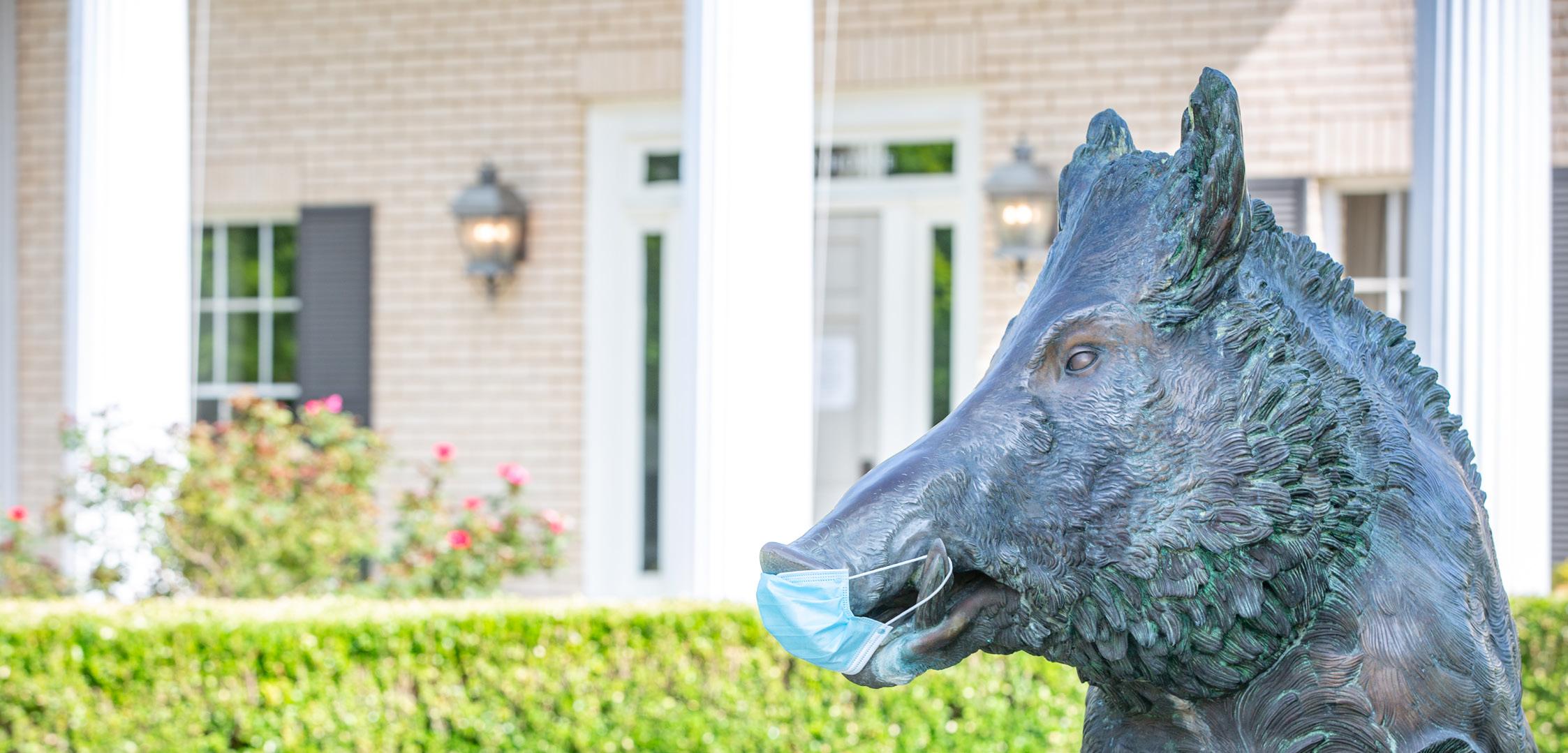
• Successfully apply core industrial engineering knowledge and skills for industrial or public sector organizations,
• Successfully pursue advanced professional degrees, graduate studies in industrial engineering, professional training, or engineering certification, and
• Demonstrate professional and intellectual growth as managers and leaders in industrial engineering, society, and their communities.
Our curriculum includes not only industrial engineering courses, but also courses in engineering science, mathematics, physical science, English, economics and other social sciences, humanities, and fine arts. University Professor, Richard Cassady, serves as the Chair of the Industrial Engineering Undergraduate Studies Committee.
Students enter our program in their second year, as all first-year College of Engineering students participate in the First-Year Engineering Program. Directed by Richard Cassady, the First-Year Engineering Program includes two semesters of academic coursework, peer mentoring, professional
development, academic advising, and academic coaching.
Since the First-Year Engineering Program was implemented in 2007, second-year retention (within the College of Engineering) of First-Year Engineering students has increased from approximately 60% to approximately 70%. Roughly 8% of retained First-Year Engineering students choose industrial engineering for their College of Engineering major.
More information on the undergraduate program can be found at http://industrial-engineering.uark.edu/academics/ undergraduate-program/
In 2020 we had two teams of students selected as semifinalists for the IISE Capstone Senior Design Award, at the spring 2020 IISE Conference. The award recognizes outstanding application of industrial and systems engineering knowledge during a capstone senior design course resulting in a significant impact on an organization.
The team of: Chase Daril, Karlton Haney, Trevor Perry, Jack West, and Bryan Withers were selected for their project, “Reducing Operational Costs of Fleet Allocation using a Simulation-Based Greedy Approach,” supported by ArcBest.
Irina Britten, Lexxy Gentile, and Wesley Nimmo were also selected for their project, “Intermodal Dray Driver Scheduling
under Daily Freight Imbalance using Forecasting and Stochastic Optimization,” supported by J.B. Hunt Transport Services, Inc.

• The Marvin Mundel Memorial Scholarship was awarded to Madeline Suellentrop. Priority for the scholarship is given to students who have demonstrated an interest in work measurement and methods engineering.
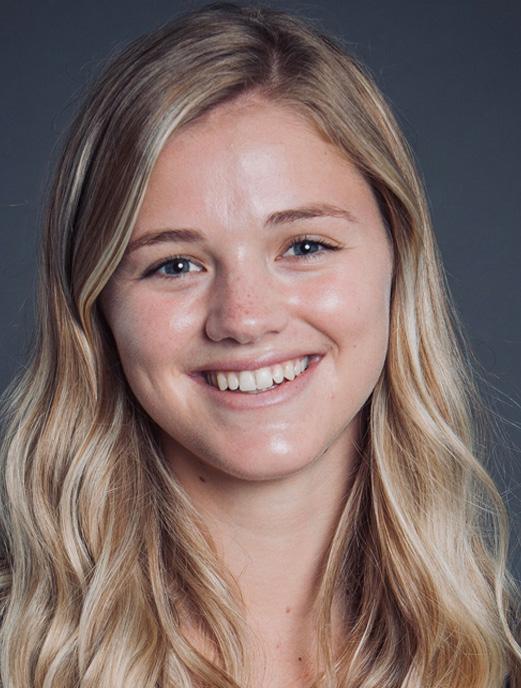
Two of our seniors received national scholarships from Alpha Pi Mu, the industrial engineering honor society. The society provides only five scholarships nationally each year.
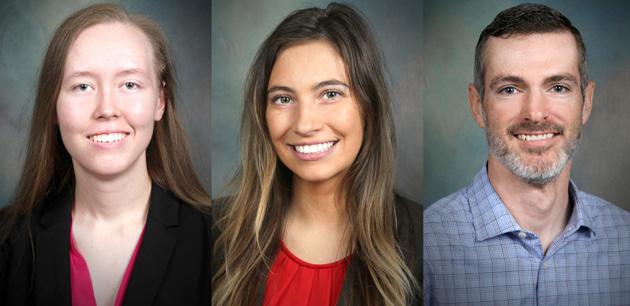
Richard Cassady, university professor, said the teams learned valuable skills while forging partnerships with local companies.
“Both teams are most deserving of this recognition,” Cassady said. “During the 2019-2020 Industrial Engineering Capstone Experience, these teams worked closely with their industry partner to develop a detailed understanding of a complex system, analyze the current performance of the system, use their industrial engineering skills to make and evaluate recommendations for improving system performance, and create deliverables to facilitate implementation of their recommendations. In addition to applying the skills they developed in their prior coursework, these teams learned and applied state-of-the-art industrial engineering techniques beyond what it is a part of our prescribed curriculum.”
Also at the IISE Conference, industrial engineering students earned several scholarships:

• Senior Camila Schrader was the recipient of the C.B. Gambrell Undergraduate Scholarship, an award based upon the nominee’s scholastic ability, character, leadership and potential service to the industrial engineering profession.
• Two students received the Dwight D. Gardner Scholarship — seniors Patrick Dougherty and Conner Waybright. (Waybright was also selected as a College of Engineering, First Ranked Senior Scholar, for receiving a 4.0 grade point on all coursework.)
Madeline Suellentrop received the 2020-21 S. Balachandran Service Scholarship. The scholarship was established in 2016 by Dr. Balachandran to recognize outstanding service to Alpha Pi Mu.
Suellentrop is the immediate past president of the University of Arkansas chapter of Alpha Pi Mu. She has also served as the recording secretary of the engineering honors society, Tau Beta Pi. She is a member of the Kappa Delta Sorority where she serves as a Girl Scout mentor, sustainability chair and as the liaison between her chapter and the Children’s Safety Center in Springdale, Arkansas.
In the fall semester of 2019, Suellentrop studied abroad in Jönköping, Sweden, studying sustainable supply chain management. She traveled to 10 different countries, met students from all over the globe and came back excited about implementing sustainability. With her research adviser, assistant professor Sarah Nurre-Pinkley, she completed her thesis, in which she analyzes the use of drones to deliver medical supplies in Rwanda. She has completed two co-op internships with Burns & McDonnell Engineering Company in Kansas City and will return to work for them after graduation.
Madeline was also chosen by the College of Engineering as the 2021 Outstanding Senior, and spoke at the college’s commencement in May. The Outstanding Senior exemplifies the values of the College of Engineering. She was also the Industrial Engineering Outstanding Senior.
Senior Jaclyn Walls also received a scholarship from Alpha Pi Mu. Walls is pursuing a minor in accounting and plans to
continue her education, obtaining a master of accountancy degree. She just completed her term as treasurer for the University of Arkansas chapter of Alpha Pi Mu.
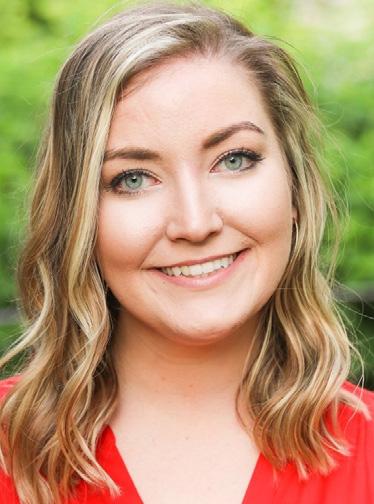
During her time on campus, Walls has served with the Student Alumni Association as president and as a member of Tau Beta Pi. Additionally, she has served with her sorority, Delta Delta Delta, as the recruitment logistics chair and with the University of Arkansas chapter of the Institute of Industrial and Systems Engineering as treasurer for two years.
A team of seniors took first place in a national logistics and supply chain case competition hosted by the Logistics and Supply Chain Division of Institute of Industrial and Systems Engineers.

“They were among the best in my class and they are among our top industrial engineering seniors. I did notice that this team used with ease tools they had learned in a number of industrial engineering courses. This success is due to their diligent work during their careers at University of Arkansas. I’m very proud of them.”

Madeline Suellentrop and Conner Waybright were selected among a class of 71 graduating seniors to be chosen by the Arkansas Alumni Association as 2021 Seniors of Significance.

The team members: Tevari Barker, Douglas Kamarade, Diego Rodriguez Kan, and Bradley Taylor were advised by Sandra Ekşioğlu, Hefley Professor in Logistics and Entrepreneurship. Teams were asked to showcase their problem-solving capability and analytical skills by analyzing a logistics and supply chain case study. The University of Arkansas team developed and solved two distribution network design models to help a company simulate a cross-docking operation by implementing a strategy called zone-skipping.
Sandra Ekşioğlu, encouraged the students to compete in the competition in the fall of 2019, while they were taking her transportation logistics class. “I am not surprised that this team of students took first place in the competition,” she said.
The number 71 commemorates the university’s founding date of 1871. The Seniors of Significance are selected based upon their academic achievements, leadership skills and extracurricular campus and/or community activities.
The Department of Industrial Engineering recognizes students each spring at the Annual Industrial Engineering Student Awards Banquet. This year, the banquet was changed to a ceremony and held virtually, as the pandemic was still an issue.
Undergraduate student recognitions included:

• 2020 Undergraduate Research Award: Matthew Walters.
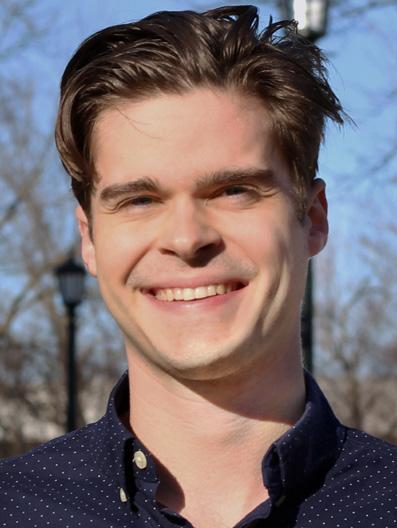
• 2021 ArcBest Outstanding Freshman: John Sooter.
• Hytrol Challenge Award 2021: Team of - Amie Beckwith, Courtney Johnson and Alyssa McKnight.

University of Arkansas Associated Student Government President, Coleman Warren was selected as a 2021 Harry S. Truman Scholar.
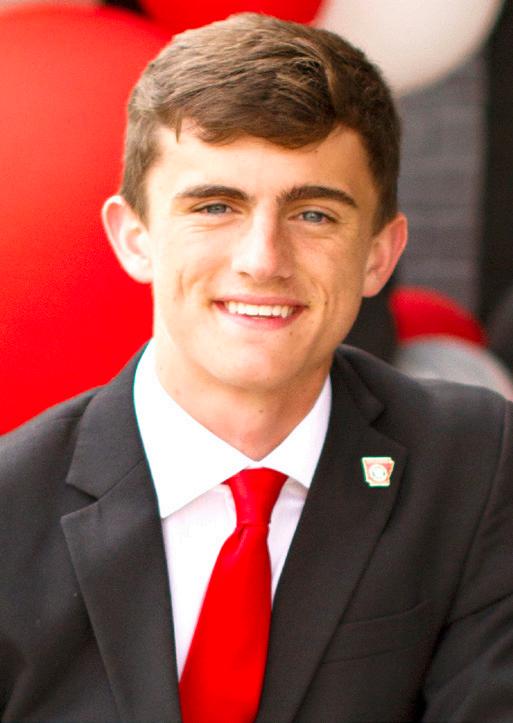
As an Arkansas Governor’s Distinguished Scholar and a University of Arkansas Chancellor’s Scholar, Coleman, a native of Farmington, is an honors junior pursuing two degrees — one in industrial engineering in the College of Engineering and one in political science in Fulbright College of Arts and Sciences. Throughout his academic career, he has also been engaged actively in campus and in community service.
Established by Congress in 1975 as the living memorial to President Harry S. Truman, and national monument to public service, the Truman Scholarship is intended to inspire the next generation of public service leaders. It provides $30,000 for graduate school as well as a lifetime network with other Truman Scholars, past and present.
One of Warren’s main concerns is addressing hunger and food insecurity issues in Arkansas. Because of his interest in food insecurity, he served as an AmeriCorps VISTA Summer Associate at the Food Bank for the Heartland in Omaha, Nebraska, working with Craig Howell, director of community partnerships.
“In the summer of 2019, Mr. Warren quickly became the leader of the VISTA team,” Howell reported. “He showed strong relationship skills with an ability to have peers follow him as a result of his energy, personality and ability to get things done. That team in the summer of 2019 was simply the best Kids Cruisin’ Kitchen team in the history of the program, which spans over 10 years. With the team leadership of Mr. Warren, over 30,000 children received regular nutritious summer meals across the communities experiencing food insecurity.”
During his time in Nebraska, Warren was able to create a high-quality, small-batch, artisan ice cream business that served as an economic engine for charitable causes. He was able to bring this concept to Northwest Arkansas after working with Neil McWilliams, the owner of The Spring Dipper in Mammoth Spring to learn the basics of making ice cream commercially.
“Coleman is a very energetic, very original and very innovative individual,” McWilliams said. “He’s doing things that no one would really try to do at that age.”
Warren worked with the Farmington School District to lease an unused kitchen facility that would serve as production headquarters and sought approval from the superintendent and the school board before having the land surveyed (working with civil engineering firm), and appealing its land use before the city planning commission.
Now that his business is operational, Warren makes each batch of ice cream himself and oversees all aspects of the business, including marketing, delivery and finances. To date, he has used the profits of his company, Simple + Sweet, to provide over 12,500 meals to hungry children in Northwest Arkansas through donations to local organizations. Having recently received $15,000 in seed funding through the Governor’s Cup competition, Warren intends to open a food truck in summer 2021.
Warren plans to use his $30,000 Truman scholarship to pursue a master’s degree in public policy at the University of Chicago or another competitive institution. “The Truman Scholarship is an amazing opportunity,” Warren said. “If I attend the University of Chicago as I am planning now, I hope to study with faculty like Prof. Susan Mayer, who has written prolifically about measuring poverty, the effect of children’s upbringing in poor neighborhoods and the effect of parental income on a child’s well-being. I also hope to intern with an organization like the Greater Chicago Food Depository, the major food bank in Chicago that coordinates over 700 food pantries, soup kitchens and other programs in the area. I am also looking forward to networking with other Truman Scholars who are interested in food insecurity issues.”


Industrial Engineering students completing internships during summer 2020 found themselves working remotely. The pandemic has demonstrated how the workforce is experiencing a shift, and the future of work after the COVID-19 pandemic may not be the same.
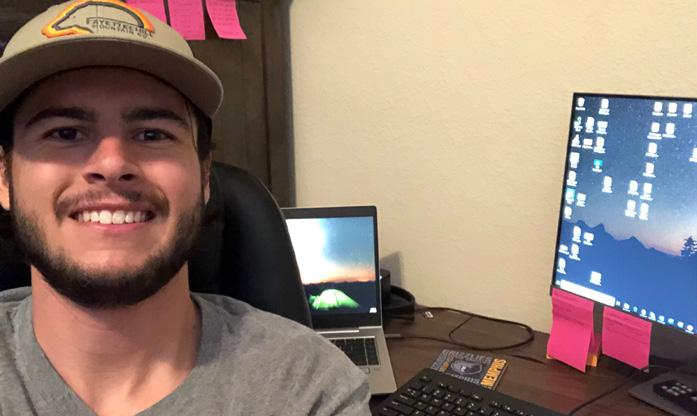
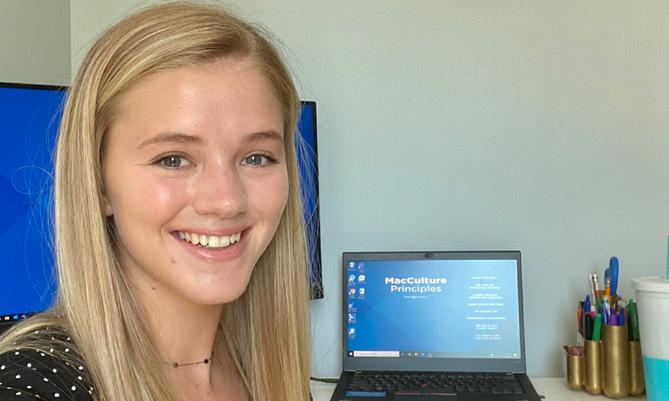
We caught up with several of our students while they were on internship during summer 2020 to find out how the experience was for them, how they managed to stay engaged, and how it impacted their understanding of the new work model. Then, we checked back in with them after their internship, to see what the experience was like.
the ones based in Arlington, so I actually worked with the Bentonville, AR, Mastercard office for my project.”
Madeline Suellentrop, spent her summer working as an intern in the utility consulting group of 1890 & Co., a division of Burns & McDonnell. The utility consulting group has multiple business lines. Madeline worked mainly with the Renewable Energy and Generation Consulting & Independent Engineering groups.
“Though a virtual internship is not ideal, it did allow me to get to know interns from all the regional offices,” said Madeline. “For example, I was a leader for the virtual intern ‘book club’, and our club had participants from all the regional offices, allowing me to expand my network far beyond the Kansas City office.”
“My primary client over the internship was Sam’s Club. Using data analytics tools to help them develop targeted marketing for their members, was an extremely interesting and insightful project, and I loved applying my IE skills and working with a local company that I know well.”
“Although the internship was remote, I was very impressed with the effort that went into making it seamless for the interns. We had tons of opportunities to meet other interns and full-time employees and often played games over Zoom. The company culture shined bright even remotely, and I had an incredible experience working for Mastercard this summer.”
Patrick Dougherty completed a virtual internship as an Associate Consultant Intern at Mastercard, based in the Arlington, Virginia office. “Even in the virtual setting, I had opportunities to connect what I’ve learned in class to real business applications.”
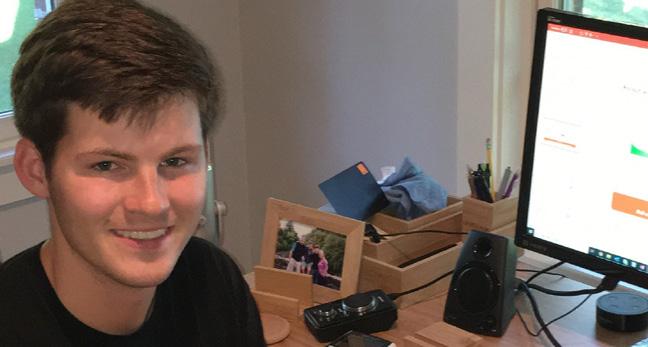
“Since the internship was remote, the company realized there was an opportunity for me to work on projects outside of
Benjamin Baser worked virtually with Lockheed Martin Aeronautics Enterprise Integration team as a Project Engineer.
“The virtual environment definitely took a couple of weeks to get used to, but Lockheed sent me all the tech I needed before my first day.” “The rest of the team was remote also, so we learned together how to navigate in the online environment. The key to working virtually, is flexibility and communication.” He continued, “My projects all had a collaborative aspect to them, so I was in regular communication with my team either through calls, emails, or IMs.”
During the 2020-21 academic year, sixty-five industrial engineering seniors participated in the Industrial Engineering Capstone Experience as part of fourteen teams of 3-5 students. The teams are matched with an industrial partner and led by a student project manager. Every student pursuing the Bachelor of Science in Industrial Engineering at the University of Arkansas is required to complete the two-semester course sequence. Richard Cassady, university professor, coordinates the Industrial Engineering Capstone Experience courses.

This year, twelve of the fourteen projects were process improvement projects. During the fall semester, these teams developed an understanding of the process details of interest and the concerns that their industry partner had about the process. They then identified the key measures, assessed and evaluated process performance under the current operating policies. In the spring semester, they made recommendations for improving the process performance and evaluated the potential impact of these recommendations. They also provided deliverables that facilitated the implementation of their recommendations.
The two remaining projects were system design projects. During the fall semester, these teams developed an understanding of the issues creating the need for the system, identified the system stakeholders, detailed the system requirements, assessed the perceived user value of each requirement, and defined the minimum viable product. In the spring semester, they designed the new system and evaluated the potential impact of implementing this system. They also provided deliverables that facilitated implementation of the new system.
Each year, the experience concludes with the Industrial Engineering Capstone Symposium. In 2020, the symposium was cancelled due to the pandemic. This year, the symposium poster session and presentations were conducted remotely, but the awards ceremony was held in person.
The awards presented included:
Project of the Year: Parker Tankersley, Project Manager; Grayson Lee, Remy Kirk, Jacob Underhill, and Alyssa Roth.
Project Title: Balancing Inbound and Outbound Flow of Trailers by Predicting Customer Compliance and Seasonality
Supported by: J.B. Hunt 360 Box Engineering Team
Data Analysis Award: Madeline Suellentrop, Project Manager; Garrett Clark, Chase Cottrell, Nicholas Jaco, and Jaclyn Walls.
Project Title: Improving Multi-Stop Truckload Pricing using Random Forest Regression

Supported by: J.B. Hunt Transport Services, Inc.
Modeling Award: Warren Lewis, Project Manager; Sam McKinney, Kyle Sprang and P. Marshal Smith.
Project Title: Increasing Violation Capture Rates by Improving Parking Control Routing and Scheduling
Supported by: University of Arkansas Transit and Parking Department
Decision Support Award: Amie Beckwith, Project Manager; Suelly Samudio Ortega, and Joseph Goodman.
Project Title: Forecasting Category Sales using Data Mining and Predictive Analytics
Supported by: Nestlé USA
Impact Award: Conner Waybright, Project Manager; Ryan Brim, Yok Lin Ong, Brandon Ward, and William Warner.
Project Title: Facilitating Chemical Risk Analysis by Organizing Toxicological Databases with a Flexible Open Platform
Supported by: Istituto Superiore di Sanità
Outstanding Project Managers: Madeline Suellentrop, Parker Tankersley, and Matthew Walters.
Outstanding Team Members: Sam Griffin, Xander Smith, and Jacob Kinney.
Outstanding Faculty Advisers: Professor Sandra Ekşioğlu, Professor Xiao Liu, and Professor Manuel Rossetti.
Outstanding Industry Partners: Edosa Aibangbee, Nestlé USA; Katie Parker, Baptist Memorial Healthcare; and Kyle Kraichley, J.B. Hunt Transport Services.

Additional projects the Capstone Experience Teams completed were:
Project Title: Reducing Empty Costs of ReloCube Repositioning through Forecasting and Optimization

Team: Laura Acosta, Project Manager; Tate Thornley, Joseph Cummings IV, Kate Burrows, and Xander Smith.
Supported by: ABF Freight
Project Title: Improving the Offer Creation Process by Standardizing ArcBest’s Bid Model
Team: Ben Barron, Project Manager; Jackson Marshall, Ben Baser, Blake Parrish, and Joseph Ellis.
Supported by: ArcBest Corporation
Project Title: Reducing Emergency Department Wait Time by Improving Nurse Scheduling using Simulation
Team: Matt Nixon, Project Manager; Junwoo Chang, Jacob Kinney, Matt Murry, and Hawkin Starke.
Supported by: Baptist Memorial Healthcare
Project Title: Reducing Length of Stay Overages by Improving Hospitalist’s Rounding Paths and Patient Assignments
Team: Lauren Law, Project Manager; Adam Corral, Courtney Johnston, Dania Quintero, and Owen Stuckey.Supported by: Baptist Memorial Healthcare
Project Title: Predicting Transitions of Steel in the Molten Scrap Metal Casting Process
Team: Esteban Lopez, Project Manager; Emily Feuerborn, Linden Van Hoose, and Logan Rodriguez.
Supported by: Gerdau
Project Title: Reducing Production Costs by Optimizing the Assignment of Parts to Machines using Cost-Benefit Analysis and Monte Carlo Simulation
Team: Matthew Walters, Project Manager; Cameron Blann, Christofel Enslin, Alyssa McKnight, and Jasia Porchay.
Supported by: Hytrol Conveyor Company, Inc.
Project Title: Improving Driver Integration across Dedicated Contract Services Accounts using Resource Identification and Capacity Planning
Team: Brianna Bert, Project Manager; Jose Beltran, Gabriel Figueroa, Sam Griffin, and Emily Rodriguez.
Supported by: J.B. Hunt Transport Services, Inc.
Project Title: Automated Pairing of Clients to Job Opportunities based on a Quantitative Assessment of Skills and Abilities
Team: Lawson Porter, Project Manager; Patrick Dougherty, Andrew Powers, and Hatem Alsayed.
Supported by: Open Avenues
Project Title: Improving Course and Classroom Scheduling Policies through Correlation Analysis and Forecasting
Team: Michael Rechtin, Project Manager; Alyssa Bobalik, Olivia Hope, and Jacob Pannell.
Supported by: The Office of the Provost at the University of Arkansas
Graduate course offerings of the Department, as well as research opportunities for Industrial Engineering graduate students, continue to grow and diversify. A sampling of our graduate students’ published work, highlighted in this section, illustrates the range of research interests being pursued under the guidance of our faculty. Also featured in this section is our professional graduate program in Master of Science in Operations Management and our newest program Master of Science in Engineering Management.
For students pursuing graduate studies in the field of Industrial Engineering, we offer several options with respect to degree, area of specialization, and full-time or part-time studies.
Graduate degrees for on-campus students are offered in two areas:
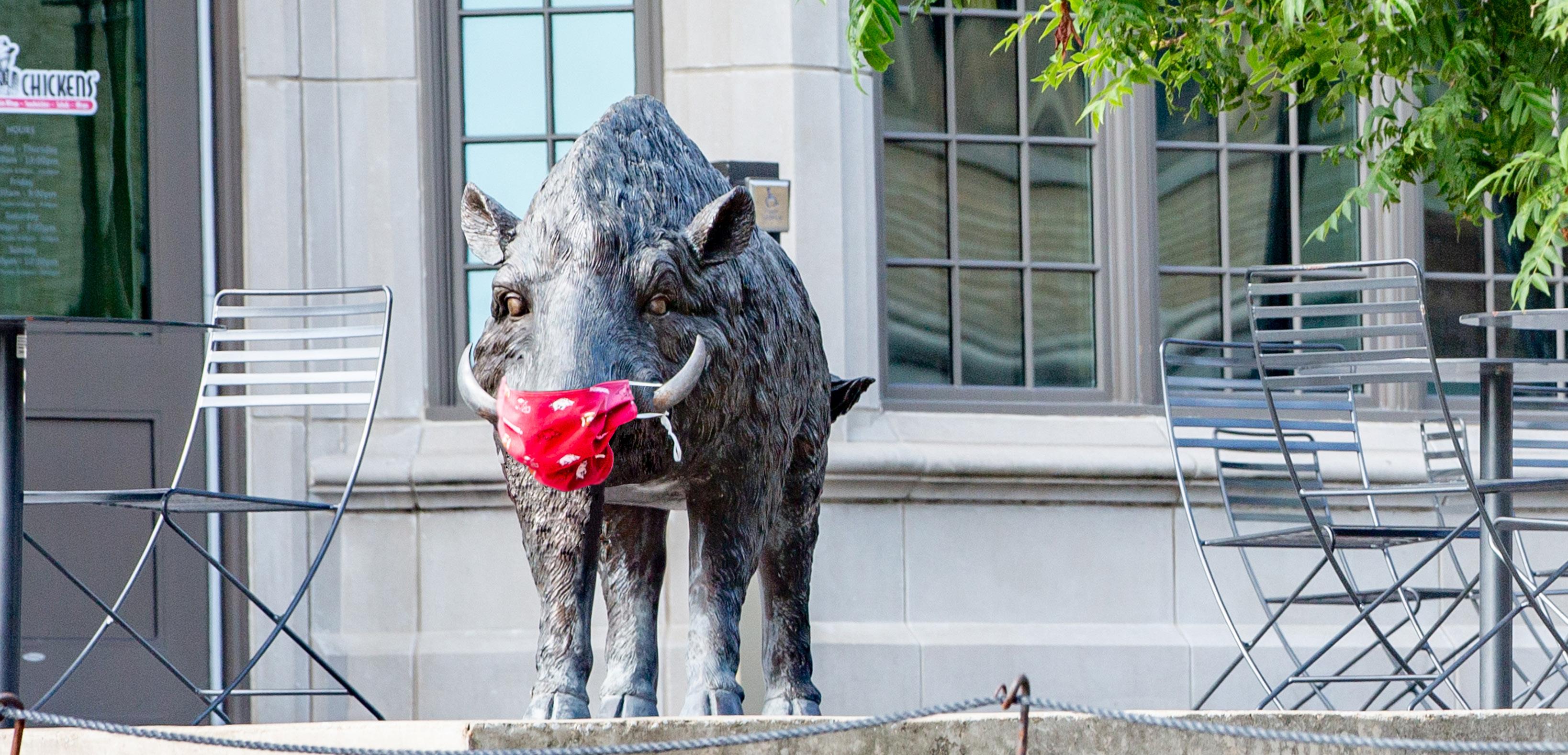
• Master of Science in Industrial Engineering (M.S.I.E.)
• Doctor of Philosophy in Engineering (Ph.D.)
In addition to traditional degree options, the Department also offers online the Master of Science in Operations Management (M.S.O.M.), the Master of Science in Engineering Management (M.S.E.M.) and the new Master of Science in Operations Analytics (M.S.O.A.).
Our faculty’s wide range of expertise provides opportunities for study in a variety of areas such as:
• Transportation, Logistics & Distribution
• Healthcare Systems Engineering
• Reliability, Maintainability & Quality Engineering
• Engineering Management
• Manufacturing & Automation
These areas continue to be supported by the following research centers and laboratories:
• Center for Excellence in Logistics and Distribution
• Mack Blackwell Rural Transportation Center
• Maritime Transportation Research and Education Center
• ReliaSoft Risk, Reliability and Maintainability Research Alliance
• Arkansas Security Research and Education Institute
• System Design and Analytics Laboratory

• J.B. Hunt Innovation Center of Excellence
Burak Ekşioğlu has stepped into the role as Graduate Coordinator. Greg Parnell serves as Director for the Master of Science in Operations Management and the Master of Science in Engineering Management programs and Chase Rainwater, associate department head and professor serves as director of the Master of Scienc in Operations Analytics.
More information can be found at: industrial-engineering. uark.edu

Nick Shallcross has distinguished himself in the Department of Industrial Engineering as a researcher’s researcher! Throughout his time with the department, Nick has shown again and again, that he has the “right stuff.”
His career with the Industrial Engineering Department began in fall of 2018. He was recognized the following spring with the first of three Omar N. Bradley Research Fellowships. Working with his adviser, research professor Greg Parnell, director of the Master of Science in Operations Management and Master of Science in Engineering Management programs, Shallcross presented his research at the 87th Military Operations Research Society Symposium in Colorado Springs.
The Bradley Research Fellowship is given to support an active duty military officer pursuing research in mathematical sciences. Selection for the fellowship is made without regard to rank, branch, or affiliation, and is granted to officers who are actively engaged in research or have the best-developed plans for providing significant contributions to Army and defense-related problems.
Building upon this success, Shallcross went on the win the Bradley Research Fellowship two more times, in 2019 and 2020, and along with a scholarship presented by the Seth Bonder Foundation, was able to continue his research. The research has provided significant contributions across several disciplines focusing on the use of information theory, set-based design, and model-based engineering to inform complex system design decisions.
Recently, a paper by Nick was selected by the International Council on Systems Engineering (INCOSE), to be featured in their Best Paper Virtual Issue. INCOSE selects papers from among all those published in the Systems Engineering journal over the previous year and publishes them in this issue. His paper “Set-Based Design: The state-of-practice and research opportunities,” was originally published in June of 2020.
“This paper provided a state-of-the-art literature review for Set-Based Design, a new approach to complex system design with teams. The paper identified research opportunities for Nick’s dissertation research on SetBased Design. He has had three additional Set-Based Design papers accepted in leading systems engineering journals,” said Parnell.


Department Head Ed Pohl commented, “Nick has made significant contributions in the area of ‘Set-Based Design’ during his Ph.D. program. Having his paper selected as a Best Paper for 2020 in the Systems Journal recognizes the impact his work is currently having on the field.”
In addition to these honors, Nick was selected by the Department of Industrial Engineering in spring 2021 as the Outstanding Graduate Student, and also as the 2020 Graduate Research Award recipient.
He is a well-rounded student, with many extracurricular activities, including being a member of the Graduate Dean’s Student Advisory Board and Alpha Pi Mu. As a military officer during his time at the University of Arkansas, he has been a mentor for students in the Army ROTC Department and has provided technical consultation for several military organizations.
Following graduation, he will assume duties as analytical division chief at the Research and Analysis Center in Fort Leavenworth, Kansas.
Students and faculty received a variety of honors at the national spring conference of the Institute for Industrial and Systems Engineers. The conference took place virtually October 31st to November 3rd.
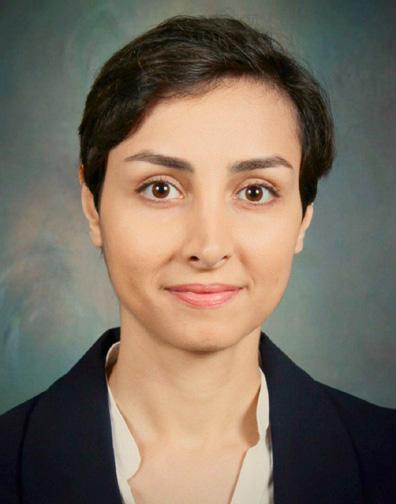
Alimohammadi was the recipient of the Gilbreth Memorial Scholarship. The scholarship is awarded to graduate students who are pursuing an advanced degree in industrial engineering or its equivalent.
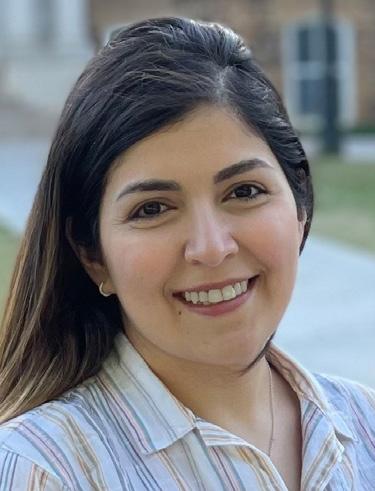
Samira Karimi and professors
Haitao Liao and Ed Pohl were the second place winner of the Thomas L. Fagan, Jr., RAMS Student Paper Award. They presented the paper, “Covariate Selection Considering Measurement Error with Application in Accelerated Life Testing,” at RAMS 2020. They were honored with a plaque and honorarium at the RAMS 2021 conference in January 2021.

Xinchao Liu, doctoral student, received 2nd prize in the Poster Competition at the 2020 NextGen Data Science Day conference. The conference was organized by the NextGen committee of the New England Statistical Society and was held virtually.
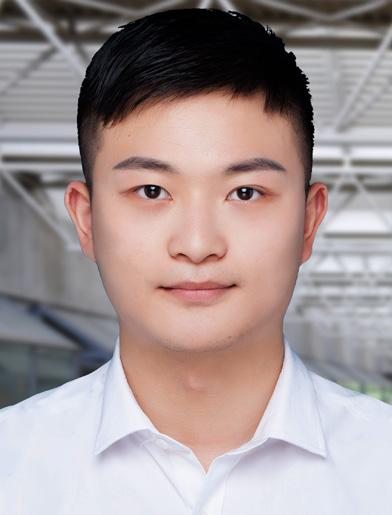
NextGen is an annual event involving all major schools in the New England region, as well as a few schools outside the region and seeks to support the next generation of statisticians and data scientists. The conference, held November 7th, 2020 was the third annual gathering since the foundation of the New England Statistical Society in 2017. The first two were held at Yale University and Bentley University, respectively.
Liu’s poster title is “Integration of Physics and Statistical Modeling: A Spatio-Temporal Model for Nonlinear Structural Dynamics,” and represents joint work with Assistant Professor, Xiao Liu, of the University of Arkansas and Professor, Guang Lin from Purdue University.


The Master of Science in Operations Management graduate degree program continues to thrive. This applied management program for working professionals attracts managers and professionals in various business sectors, industries, military branches of service, and government bodies.
In the 2020-2021 academic year, there were 778 unique students enrolled in the program and a total of 2652 course enrollments for the year. Over ninety percent of those enrollments were online courses. The Master of Science in Operations Management program continues to be the University’s largest graduate program with 156 students completing their degree in the 2020-2021 academic year.
Operations Management coursework emphasizes practical knowledge in areas such as project management, decision making, supply chain management, quality management, and many other areas of importance to today’s manager. Program content focuses squarely on the concepts, methods, and tools that are essential to the successful management of work processes, projects, and people in a wide spectrum of organizations. The curriculum has an Industrial Engineering perspective on the principals of management, and equips graduates to carry out their managerial responsibilities more effectively. Students are able to select from thirty-five graduate courses to make up the ten required to complete the degree.
The program is offered at the University of Arkansas’ flagship Fayetteville campus and via online learning. It is also hosted on two active duty bases, Naval Support Activity Mid-South at Millington, Tennessee; and Hurlburt Field Air Force Base at Fort Walton Beach, Florida.

By operating in eight-week terms and having an online option for program courses, the flexibility of the program accommodates students employed full-time by Fortune 500 companies such as Walmart, Sam’s Club, Tyson Foods, J.B. Hunt Transport, FedEx, Lockheed-Martin, and Pratt & Whitney. We are proud of our military affiliation and have many current military members and veterans as students from all branches of service stationed at our host bases, and throughout the world.
The curriculum is presented by outstanding faculty members who are drawn from the University’s Industrial Engineering Department and from businesses throughout the country. There are six industrial engineering faculty members involved. We have three full-time Master of Science in Operations Management instructors, and sixty-one part-time faculty members who teach in the program. As instructors, the program employs business professionals who are academically qualified and have accrued extensive managerial industry experience in the specific subject that they teach.
Admission to the program requires a student to have a minimum grade-point average of 3.0 either on the last sixty credit hours of attempted baccalaureate coursework, or from all coursework from the first conferred baccalaureate degree from a regionally accredited institution. The program now encourages students who have a GPA between 2.5 and 3.0 to enter one of the accompanying graduate certificates, in order to gain admission if they complete coursework with a 3.5 GPA. This is a popular option that is helping more students matriculate into the program.
The motto, “Learn it Today, Use it Tomorrow” guides the program. With this goal in mind, the program has three graduate certificates that continue to gain momentum and popularity among Master of Science in Operations Management students. The certificates can be taken concurrently with the Master of Science in Operations Management or Master of Science in Engineering Management programs, or be earned as a stand-alone certificate. The Project Management Graduate Certificate has three required courses and prepares the student to take the exam to become a certified Project Management Professional. The Lean Six Sigma Graduate Certificate has four required courses and prepares the student to take the International Association for Six Sigma Certification Green Belt Certification Exam. The Homeland Security Graduate Certificate consists of three required courses and one elective and prepares the student to take the American Society for Industrial Security Certified Protection Professional exam. As of spring 2021, 431 students have graduated with the Project Management Graduate Certificate, twenty-one students for Homeland Security and thirty-nine for Lean Six Sigma.
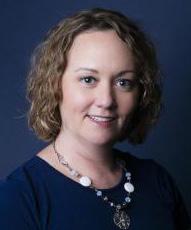

The Master of Science in Engineering Management marks its second year with admissions continuing to exceed initial expectations with 79 students. Additionally, the program has 20 graduates in its fourth year. The curriculum introduces students to historical and contemporary management theories and provides practical techniques to apply managerial best practices within technical environments. This program is
designed for engineers with ABET-accredited bachelor degrees in engineering who want to move into leadership positions in their organizations.
Karin Hickenbotham is the new Marketing and Communications Specialist for Master of Science in Operations Management and Master of Science in Engineering Management and transitions into this role from Program Manager for Master of Science in Operations Management. Karin came to the program in January 2020 and previously was responsible for admissions, recruiting and advising of students. In this new role, she will be responsible for all marketing and communications which includes creative content, advertising and promotional activities, website design, webinars and other recruitment events, videography and maintaining industry relationships. Karin has been in higher education since 2009 and has experience in recruitment, admissions, advising, retention and marketing. Before coming to Fayetteville, she worked at the University of Arkansas – Fort Smith and University of Central Oklahoma, where she also earned her Master of Education in Training and Development. She holds a Bachelor of Arts in Journalism and a Bachelor of Science in Environmental Studies.
The annual Faculty Meeting was held in July 2021. Over seventy-five people attended, including Master of Science in Operations Management and Master of Science in Engineering Management faculty and staff and guest speakers. Everyone gathered in-person and via Zoom to collaborate on course development and to participate in training.
During the meeting, instructors learned best practices from one another, engaged in a panel discussion with students, and received insightful information and updates regarding department plans and online services such as ProctorU and Blackboard.
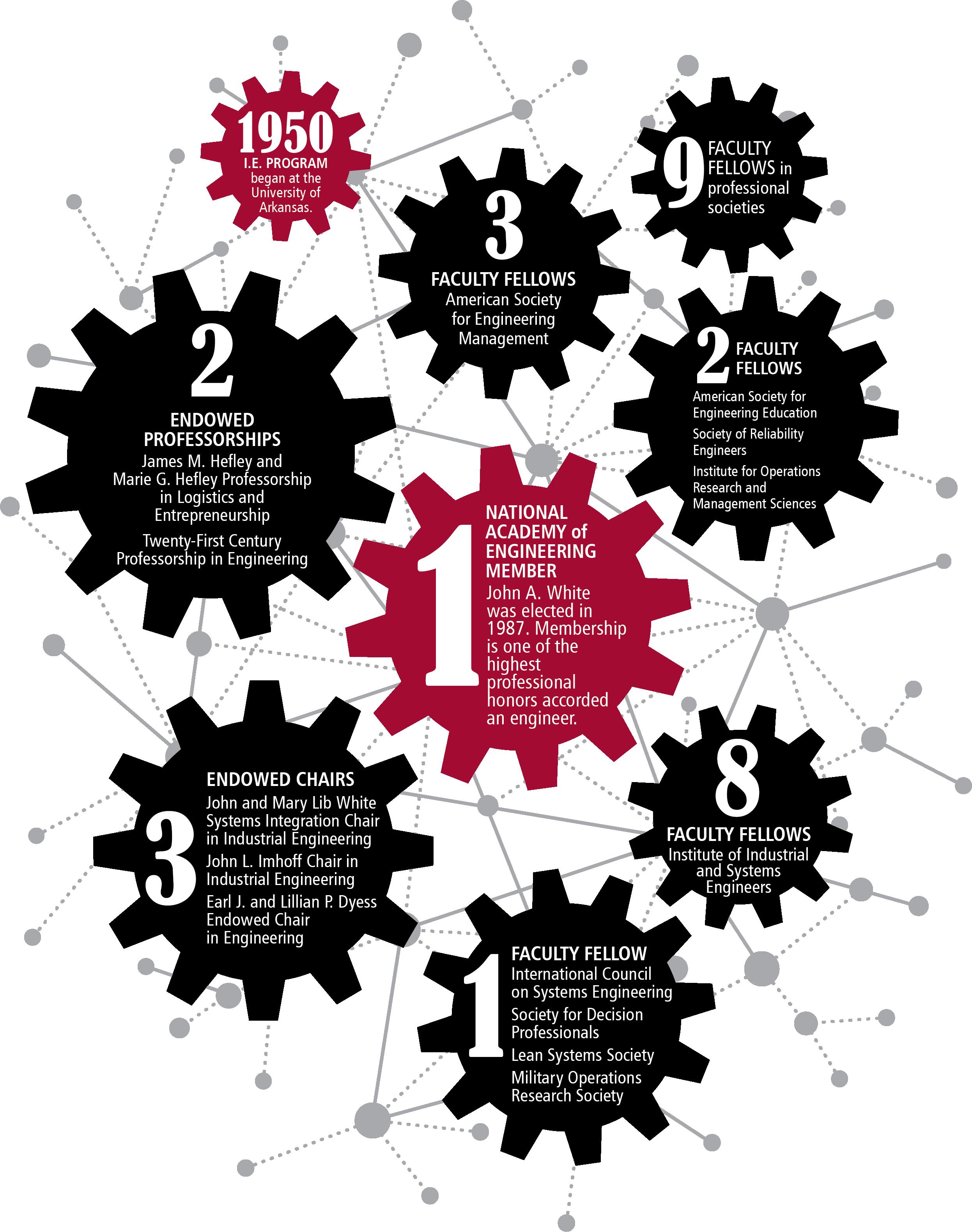
Kayla McKeon was nominated by the University of Arkansas for the H. Boyd McWhorter Scholar-Athlete Post-Graduate Scholarship.
Kayla received her bachelor’s degree in industrial engineering in summer of 2020. In spring 2020 she was selected as an Outstanding Team Member of the Industrial Engineering Capstone Experience Symposium.
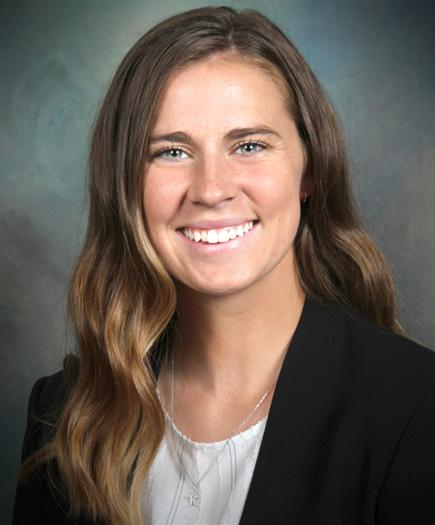
Josh McGee has been appointed to a National Academies of Sciences, Engineering and Medicine panel charged with making recommendations that will inform the National Center for Education Statistics’ priorities through the remainder of the decade.
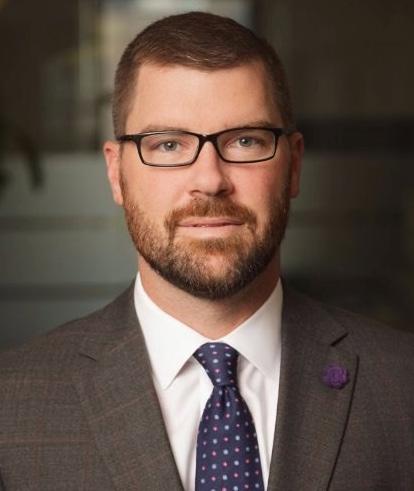
Over the next year, the “A Vision and Roadmap for Education Statistics in 2030 and Beyond” panel will meet to develop recommendations and draft a consensus report. The work is being funded by the U.S. Department of Education.
McGee, the associate director of the Office for Education Policy in the College of Education and Health Professions, said
he’s honored to be part of a group that will help shape the future of the NCES, the primary federal entity responsible for collecting, analyzing and disseminating education data.

“We live in an increasingly data-driven world. Refreshing NCES’s approach to education data has the potential to unlock new insights about students and the schools they attend, helping parents, teachers and policymakers work toward better outcomes for kids,” he said.
In addition to recommending priority areas and activities, the panel is also tasked with reporting on how the NCES should operate, including staffing, size, use of contractors and implications for its budget. Panel members are also being asked to help decide how the NCES can increase the impact of its educational statistics.
The panel appointment ends in July 2022.
In 2020, the Arkansas Department of Transformation and Shared Services named McGee the state’s chief data officer. In this role, he led the state’s effort to bring disparate data together and put it to use to improve the efficiency and effectiveness of state government.
Prior to joining the University of Arkansas in 2019, McGee was an executive vice president with the Arnold Foundation in Houston where he led a team that invested $50 million in data-driven efforts to improve public policy in six states and Washington, D.C.
A native Arkansan, McGee received a master’s degree and a bachelor’s degree in industrial engineering and a doctorate in economics, all from the University of Arkansas.
The Arkansas Academy of Industrial Engineering was founded in 1986 to recognize the achievements of University of Arkansas Industrial Engineering graduates and to provide continuing guidance and support to the Department of Industrial Engineering. The Academy also provides its members with the opportunity to nurture the organization that played an important role in their professional growth and development. Academy members provide tremendous financial resources that endow many scholarships for the Industrial Engineering students.
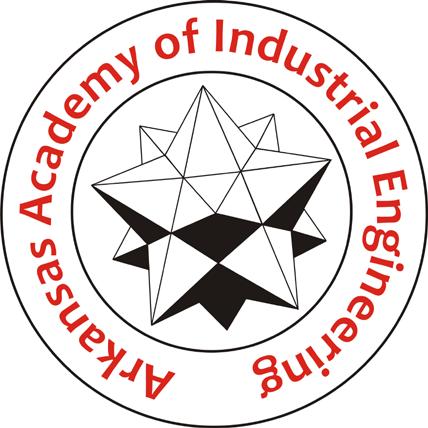
The members of the 2021 Liaison Committee are:
• Jonathon Fite, Managing Partner of KMF Investments.
• David Humphrey, Vice President of Investor Relations for ArcBest in Fort Smith, Arkansas.
• Karen Jewell, Vice President of Engineering and Technology at J.B. Hunt Transport Services, Inc. Jewell is also the current President of the Arkansas Academy of Industrial Engineering.
• Bill Klimack, Retired U.S. Army Officer, Former Department Head at West Point, Decision Analysis Manager at Chevron (Retired 2020).
• Gül E. Kremer, Professor and Chair of the Department of Industrial and Manufacturing Systems Engineering at Iowa State University.
The AAIE organizes a Liaison Committee that serves an advisory board and meets annually to evaluate the department. The committee is comprised of accomplished professionals from academia, business, and industry who bring both an applied perspective and an independent assessment to the Industrial Engineering program at the University of Arkansas.
It is the opinion of this year’s Liaison Committee that overall, the Industrial Engineering Department continues to be extremely successful in delivering its mission. Across the board, student, faculty, and staff successes over the past year are a testament to this. Departmental leadership remains strong and committed to continuous improvement.
• Willie Mongtomery, III, Senior Director of Data Science in Supply Chain Analytics with Walmart Inc.
• Jen Pazour, Associate Professor of Industrial and Systems Engineering at Rensselaer Polytechnic Institute (RPI).


• Tarek Taha, Sr. Director Engineering & Technology with J.B. Hunt.
• Eileen Van Aken, Professor and Department Head of the Grado Department of Industrial and Systems Engineering at Virginia Tech.
• Martha Wolf, Principal Network Design Engineer at AT&T and President-Elect of the Arkansas Academy of Industrial Engineering.
The Industrial Engineering Department has three physical computer laboratories for student use. These are the Foust L ab (BELL 4127-4128), Stephens Lab (BELL 4134A) and a general access computer lab shared with Civil Engineering (BELL 4133). All are equipped with the latest hardware, software and specialized programs.
The Foust Computation Laboratory is Industrial Engineering’s premier computing and teaching lab, providing general computing access for all students and supports the computing needs associated with course work. Included in the lab are a project area with whiteboards to encourage student discussions. Occupying approximately 2,100 square feet, the computer lab area can accommodate 44 students.
The Industrial Engineering Department is committed to providing the latest in computer technology, software capability, and technical expertise to enhance the educational experience for all students. The Foust Computation L ab is open 24 hours a day throughout the semester to all faculty, staff, and students enrolled in industrial engineering classes.
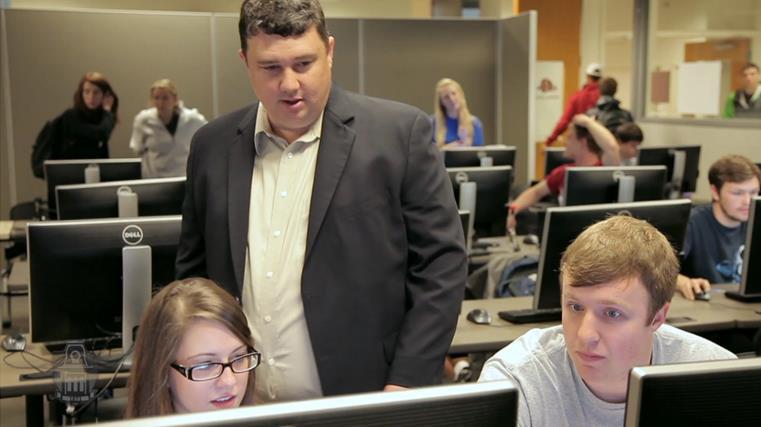

Used primarily for students in the Industrial Engineering Capstone Experience course, the space is equipped with a conference area, mobile media cart with a 60” television monitor, computer, and conference phone. This enables students to meet with industry partners, review draft versions of course milestones, and make presentations of project results.
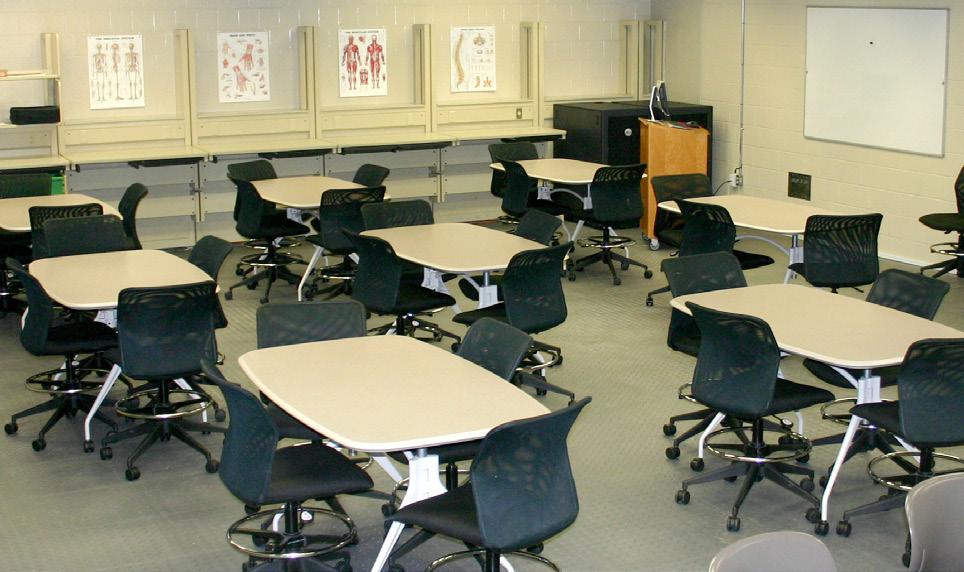
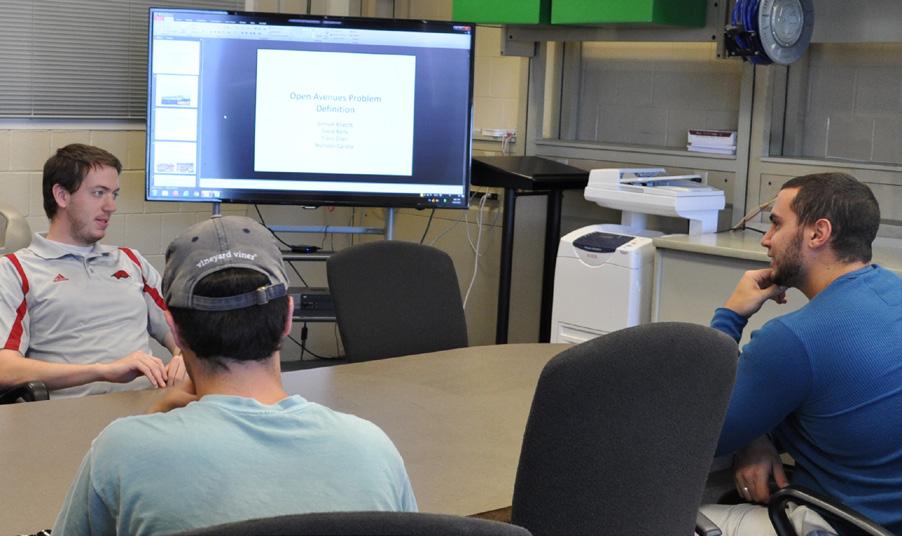
This lab supports two undergraduate courses, Methods & Standards and Ergonomics. The space is used to the hold lab meetings for these two courses where students conduct experiments related to cognitive ergonomic concepts, hand tool design, anthropometric measurement, time studies, work sampling, and worksite analysis, and design. The space also features a conference area where student teams can meet to discuss research.
The Bill and Margaret Harrison Family Video Conferencing Facility was made possible by a contribution from alumni William and Margaret Harrison of Little Rock.
The paramount feature in the facility is the state-of-theart software and equipment. The facility is equipped with LifeSize 220 Express, described as the most full-featured video conferencing system available.
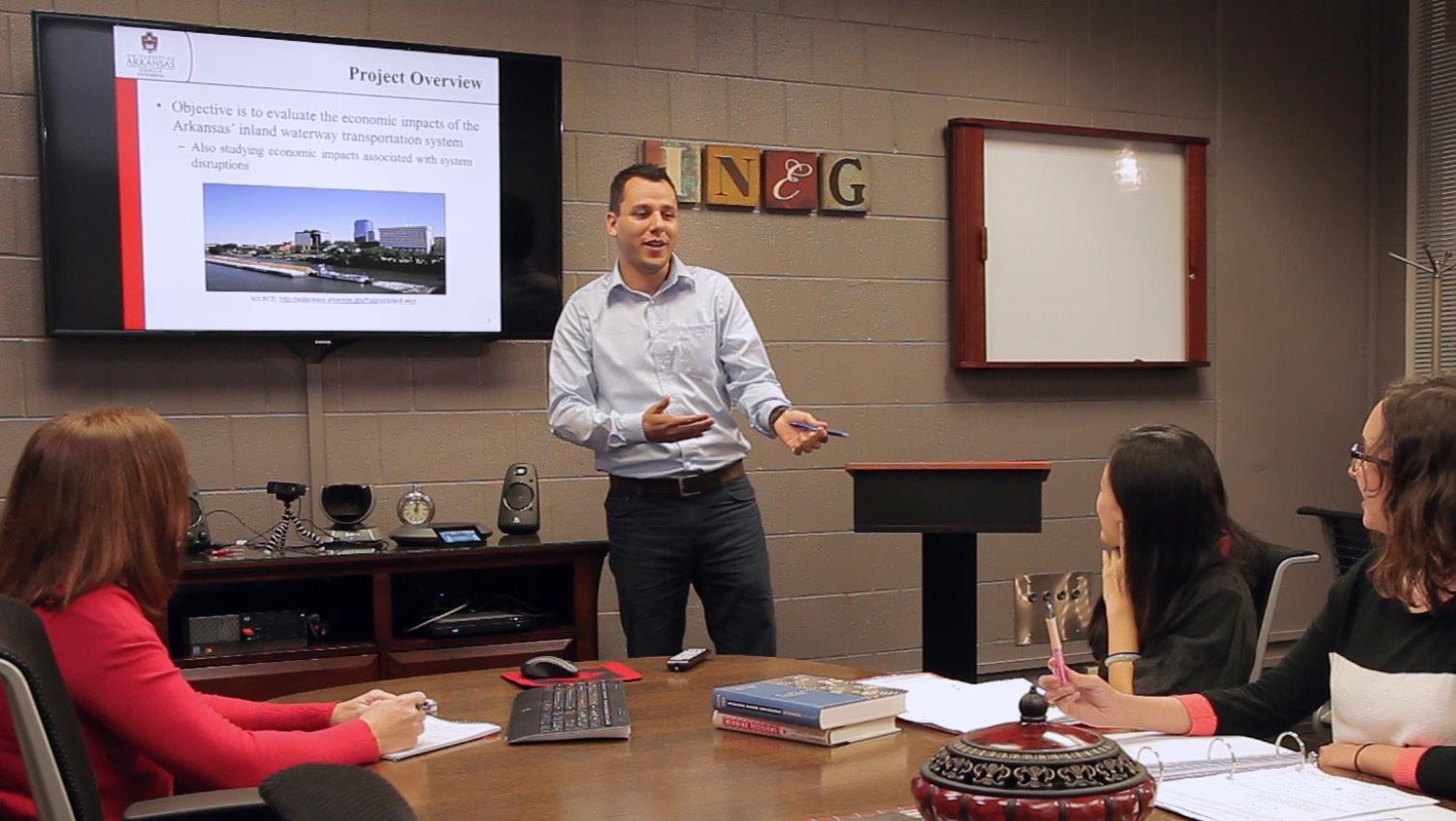
The system allows remote video and audio communication between up to eight parties concurrently, and users can share content, control cameras, change layouts, and add participants with ease. It includes an application for smart phones, tablets, and computers and has the ability to record meetings and stream viewing.


The Manufacturing Automation Lab allows students to gain hands-on experience with technologies that boost manufacturers’ efficiency and agility. This includes both robotics and additive manufacturing.
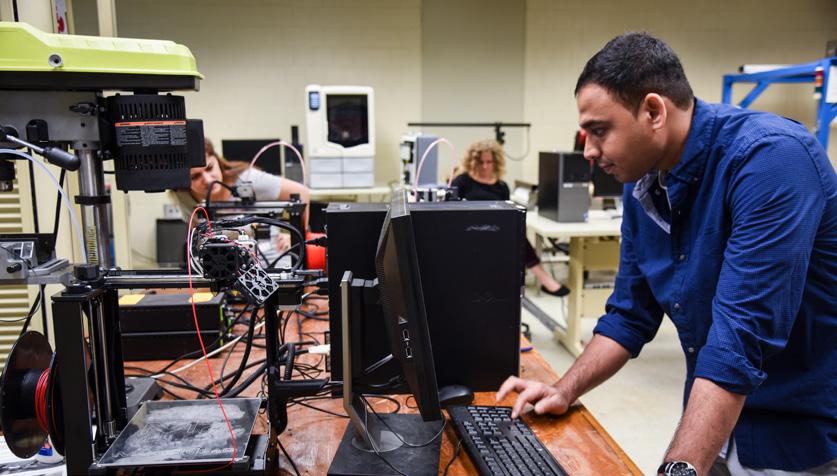
The lab hosts two traditional robotic work cells. The visionequipped Adept Cobra is a 4-axis SCARA geometry that is ideal for high-speed pick-and-place operations. The other work cell features an Adept Viper 6-axis articulated arm mounted on a 2-axis Adept Python Cartesian robot. This is a common arrangement in industry for manufacturing tasks such as robotic welding and machine loading/unloading.
can handle complex perception and manipulation tasks.
The UR10 is a traditional 6-axis articulated arm. Together they represent the next generation of industrial robotics.
The Turtlebot mobile robot from Clearpath Robotics is the lab’s fully autonomous robot that gives students experience with the simultaneous localization and mapping (SLAM) technologies used in both industrial mobile robotics and autonomous vehicles.
The lab also features two collaborative robots: Baxter from Rethink Robotics and a UR10 from Universal Robots. Both are intrinsically safe and possess human-friendly task specification, allowing humans to enter the work envelope and interact with the robots. With two seven-axis arms, integrated machine vision, and an interactive display, Baxter
Additionally, the lab stays particularly active in the realm of Additive Manufacturing. The Stratasys uPrint is an industrialgrade fused deposition modeling (FDM) 3D printer. Further enhancing exposure to this type of manufacturing is the lab’s MakerGear M2 desktop 3D printers, Simplify3D printing software, and Autodesk Inventor CAD software to provide low-cost, hands-on 3D printing experience for students.
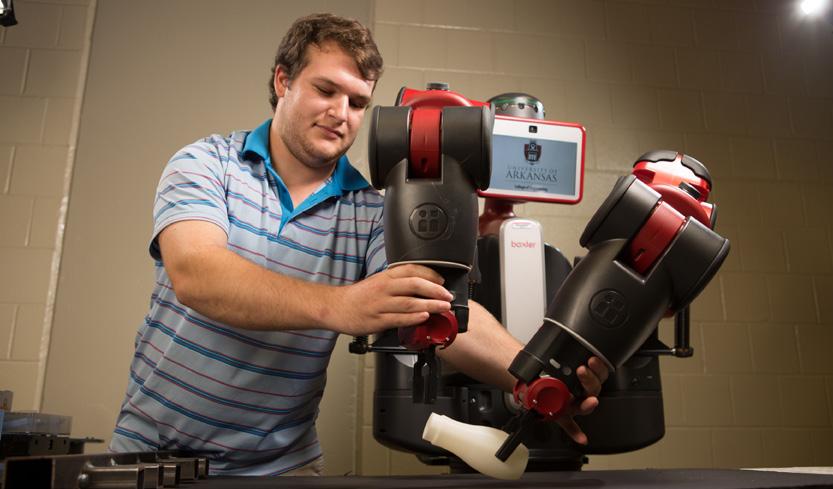
The Larry and Gwen Stephens Undergraduate Research Lab provides state-of-the-art facilities including the latest computer hardware and software designed for industrial engineering projects.
The lab provides individual workspace for up to 15 undergraduate students. To be eligible for a space in this lab, a student must be engaged in research with an industrial engineering faculty member.
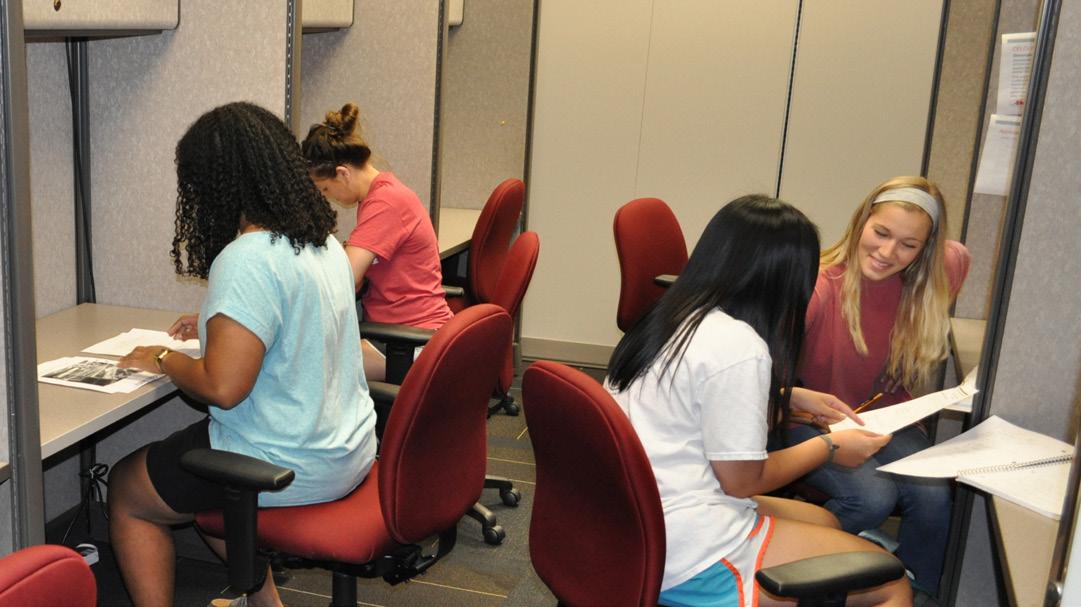

ReliaSoft Corporation donated software to the University of Arkansas to form and support the ReliaSoft Risk, Reliability, and Maintainability Research Alliance. The software provides engineering students with state of the art tools to help identify potential risks and calculate the severity of disruptions within a manufacturing or transportation environment.
In the Reliability and Intelligent Systems Engineering (RISE) Laboratory, research efforts are being taken to create holistic tools
that will enable accurate reliability estimation, proactive control of product reliability and operational adjustments to adaptively coordinate product reliability and service logistics, so that the overall uncertainty can be reduced more effectively and globally.
To estimate and improve product reliability, different types of reliability tests at material and component levels can be conducted. The application areas of our theoretical and experimental studies include microelectronics, machine tools, electromechanical components, and nanomaterials. The lab at the UofA’s Engineering Research Center houses a combined environmental testing facility that provides a product designer with a full spectrum of analysis on the potential failure modes as well as lifetime and/or degradation data.
The team has developed a collection of generic models and tools for analyzing accelerated life or degradation testing data involving complex covariates. Moreover, their previous research on reducing the energy consumption of such reliability tests will make the implementations of testing
strategies and data analysis more attractive.
Indeed, by precisely knowing the reliability of a product under different and time-varying operating conditions, prognostics, condition-based maintenance and proactive service logistics can be carried out more effectively than ever before.


The other research focuses of this research lab are on data analytics in advanced manufacturing (e.g., additive manufacturing), energy systems, and healthcare.
To learn more about the RISE Laboratory, please contact liao@uark.edu
The University of Arkansas, Department of Industrial Engineering has been at the forefront of engineering resilient systems using Set Based Design (SBD). Greg Parnell leads the System Design and Analytics Laboratory (SyDL) which currently includes five professors and several graduate students.
The team has pioneered new methodologies efficiently exploring trade-space and analyzing trade-offs using SBD. Together they provide world-class expertise in decision analysis, engineered system resilience, system reliability, and trade-off analytics. With over 50 years of combined military acquisition experience, our team also has access to industry standard software. The System Design and Analytics Laboratory performs work under the direction of the U.S. Army Engineer Research and Development Center’s (ERDC) Institute for Systems Engineering Research with funding from the Engineering Resilient Systems Program, the Department of Homeland Security, the U.S. Corps of Engineers.
The U.S. Army Engineer Research and Development Center helps solve our nation’s most challenging problems in civil and military engineering, geospatial sciences, water resources, and environmental sciences for the Army, Department of Defense, civilian agencies, and our Nation’s public good. Their vision is to become the world’s premier public engineering and environmental sciences research and development organization.
You can learn more about the System Design and Analytics Laboratory at https://sydl.uark.edu/



More information on the Industrial Engineering Labs can be found at: industrial-engineering.uark.edu/Research/Labs/

Ph.D., M.S. (University of California), B.S. (Princeton University)
Ph.D. I.S.E (Virginia Tech)
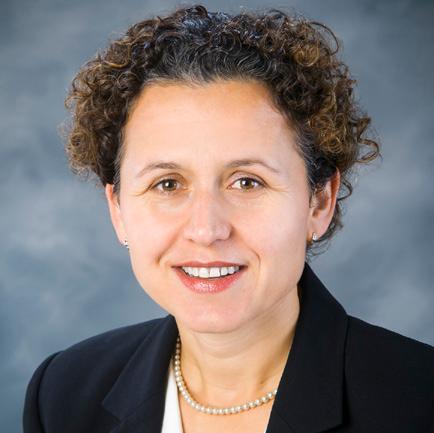
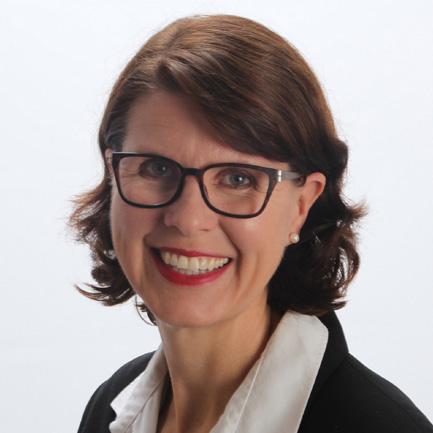
M.S.I.S.E (Virginia Tech)
B.S.I.S.E (Virginia Tech)
Ph.D. (University of Florida)
M.S. (University of Florida)
B.Eng. (King Mongkut Institute of Technology)
Ph.D. (University of Pittsburgh)
M.S.I.E (University of Pittsburgh)
B.S.I.E. (University of Pittsburgh)
Ph.D. (University of Florida)
M.S.E.B.M. (University of Warwick)

B.S.I.E. (Bogazici University)
Ph.D. (University of Florida)
M.S.E.M.S. (Mediterranean Agronomic Institute of Chania)
B.S.B.A. (University of Tirana)
Ph.D. (Oklahoma State University)
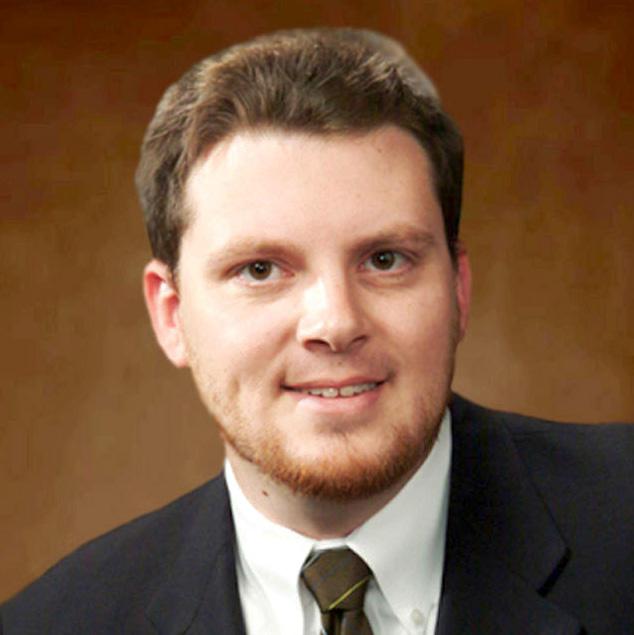
M.S.O.R. (University of Arkansas)
B.S.E.E. (University of Arkansas)
Ph.D. Engineering (University of Arkansas)
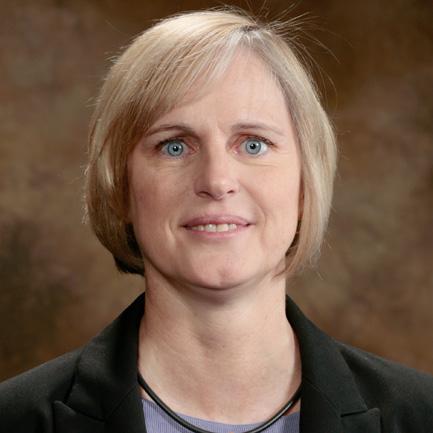
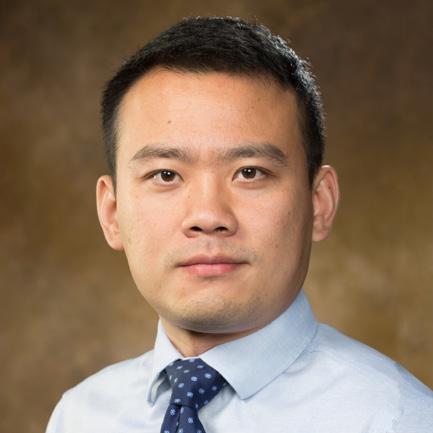
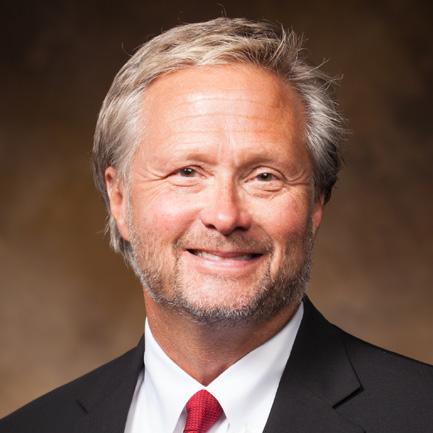
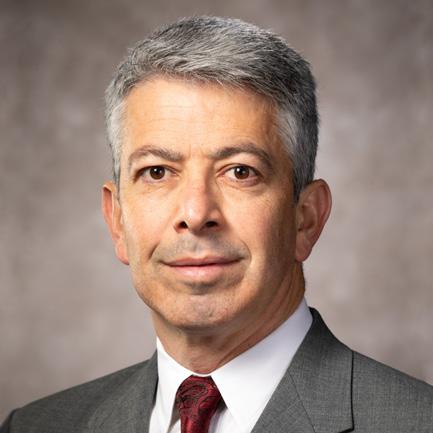

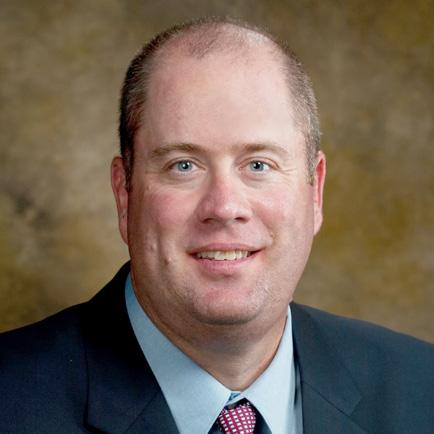
M.S. Electrical Engineering (University of Arkansas)
B.S. Electrical Engineering (University of Arkansas)
Ph.D. I.E. (National University of Singapore)
B.Eng. M.E. (Harbin Institute of Technology)
Haitao Liao, Ph.D. Professor
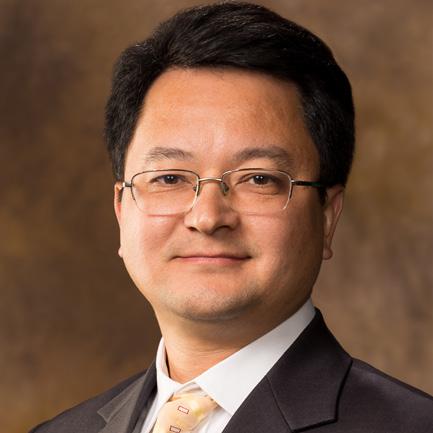
Ph.D. I.S.E. (Rutgers University)
M.S.I.S.E. (Rutgers University)
M.S. Statistics (Rutgers University)
B.S.E.E. (Beijing Institute of Technology)

Ashlea Bennett Milburn, Ph.D. Associate Professor
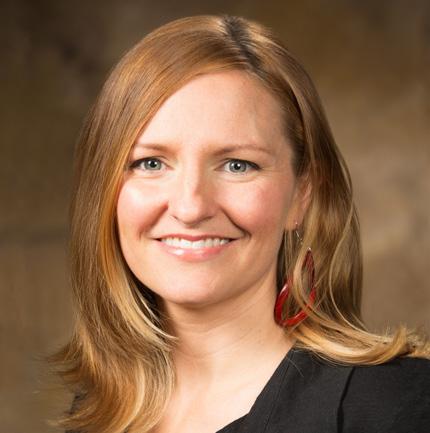
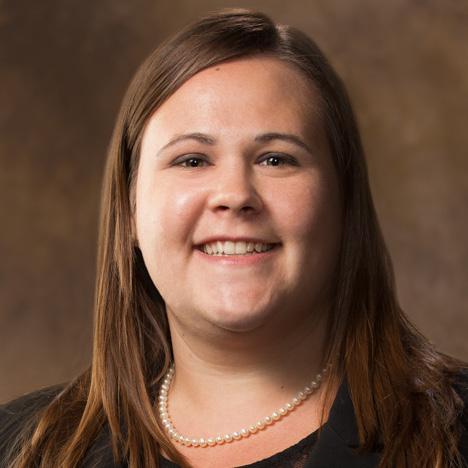
Ph.D. I.S.E. (Georgia Tech)
M.S.I.S.E. (Virginia Tech)
B.S.I.E. (University of Arkansas)
Heather Nachtmann, Ph.D. Associate Dean for Research
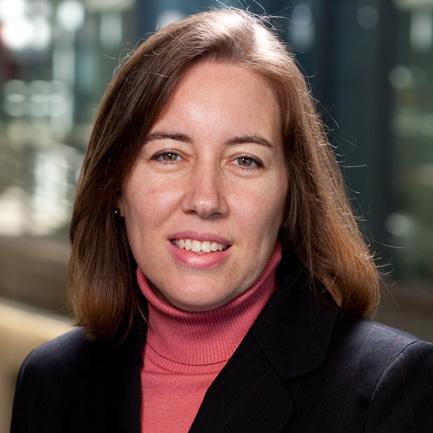
Ph.D. (University of Pittsburgh)
M.S.I.E. (University of Pittsburgh)
B.S.I.E. (University of Pittsburgh)
Kim LaScola Needy, Ph.D., PE, CFPIM, PEM Dean, College of Engineering
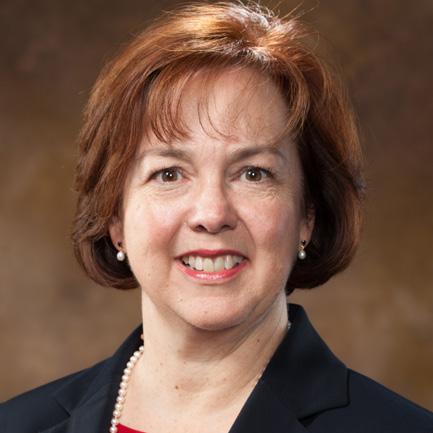
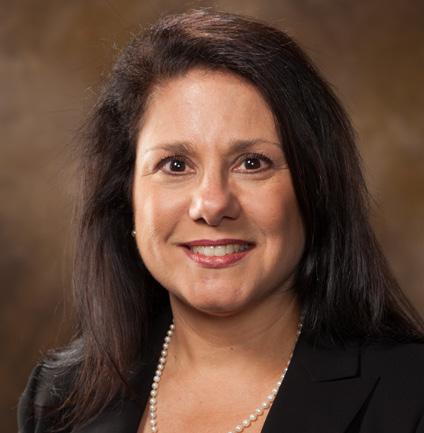
Ph.D. (Wichita State University)
M.S.I.E. (University of Pittsburgh)
B.S.I.E. (University of Pittsburgh)
Sarah Nurre, Ph.D. Assistant Professor
Ph.D. (Rensselaer Polytechnic Institute)
M.Eng. (Rensselaer Polytechnic Institute)
B.S. (Rensselaer Polytechnic Institute)
Gregory S. Parnell, Ph.D. Professor of Practice and Director
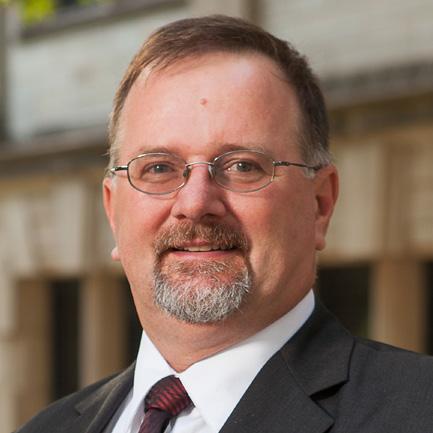
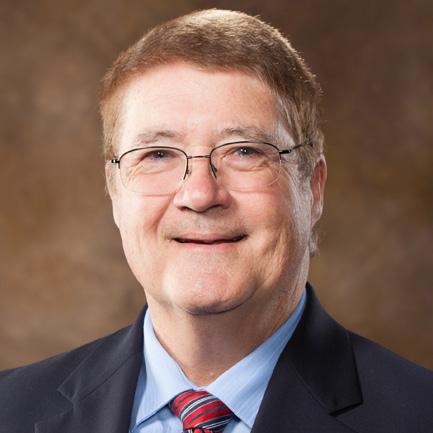
M.S.O.M. and M.S.E.M. Programs

Ph.D. (Stanford University)
M.S. (University of Southern California)
M.E.I.S.E. (University of Florida)
B.S. (University of New York at Buffalo)
Edward A.
Ph.D. Professor, Department Head
Ph.D. (University of Arizona)
M.S.R.E. (University of Arizona)
M.S.S.E. (Air Force Institute of Technology)
M.S.E.M. (University of Dayton)
B.S.E.E. (Boston University)
Ph.D. (University of Arkansas)
M.S.S.E. (Air Force Institute of Technology)
B.S.M.E. (Tulane University)
Chase Rainwater, Ph.D. Professor & Associate Department Head
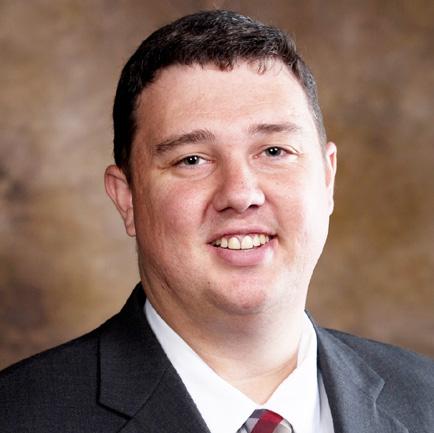
Ph.D. (University of Florida)
B.S.I.E. (University of Arkansas)
Manuel D. Rossetti, Ph.D., PE University Professor and Director of the Data Science Program
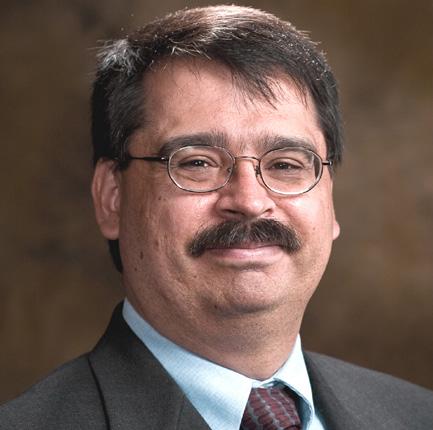
Ph.D. (The Ohio State University)
M.S.I.S. (The Ohio State University)
B.S.I.E. (University of Cincinnati)
Karl D. Schubert, Ph.D. Professor of Practice
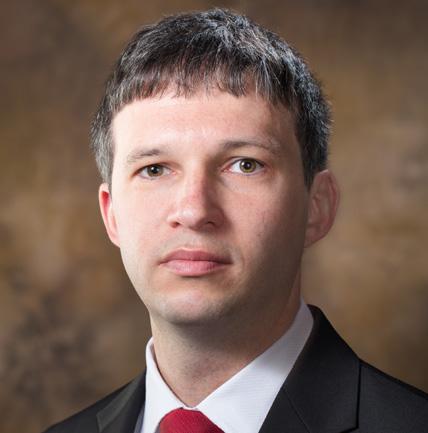
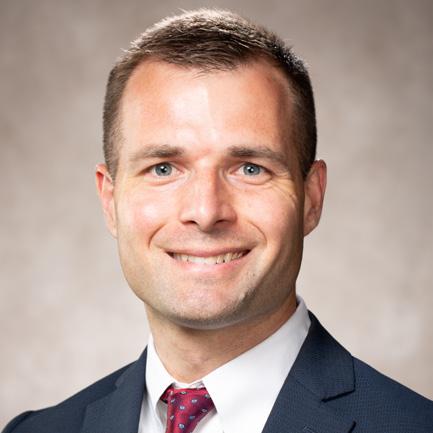

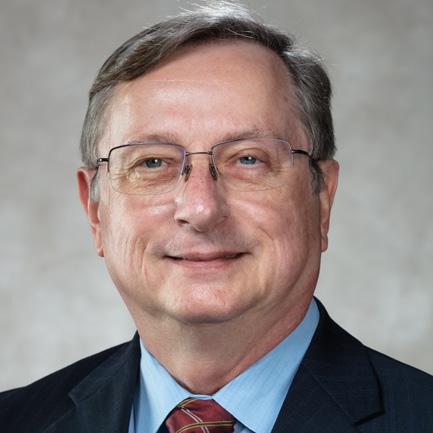
and Assoc. Director of the Data Science Program
Ph.D. (Uiversity of Arkansas)
M.S.C.E. (University of Kentucky, Lexington)
B.S.C.E. (University of Arkansas)
Eric Specking, Ph.D.
Assistant Dean of Enrollment and Retention
Ph.D. (University of Arkansas)
M.S.I.E. (University of Arkansas)
B.S.C.E. (University of Arkansas)
Kelly Sullivan, Ph.D. Associate Professor
Ph.D. (University of Florida)
M.S.I.E. (University of Arkansas)
B.S.I.E. (University of Arkansas)
John A. White, Ph.D., PE
Distinguished Professor & Chancellor Emeritus
Ph.D. (The Ohio State University)
M.S.I.E. (Virginia Polytech Institute and State University)
B.S.I.E. (University of Arkansas)
Shengfan Zhang, Ph.D. Associate Professor
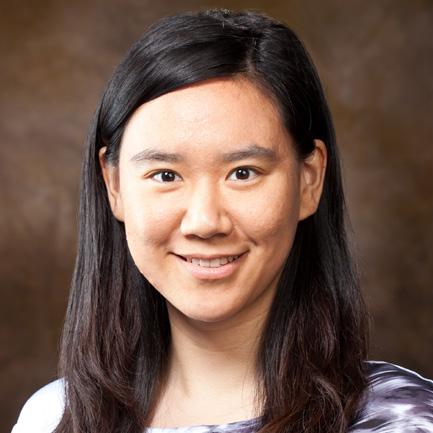
Ph.D. (North Carolina State University)
M.I.E. (North Carolina State University)
B.M. (Fudan University, Shanghai)
The title Fellow is used to describe the highest level of membership in most professional societies. Requirements to achieve the level of Fellow vary among organizations. Fellows are typically nominated by other Fellows, have demonstrated exceptional achievement in their field, and devoted service to the organization. The Industrial Engineering Department proudly recognizes faculty who have achieved this prestigious status.
American Society for Engineering Education
Kim Needy
John White
American Society for Engineering Management
Kim Needy
Heather Nachtmann
Edward A. Pohl
Institute of Industrial & Systems Engineers
Richard Cassady
John English
Haitao Liao
Heather Nachtmann
Kim Needy
Edward A. Pohl
Manuel Rossetti
John White
Institute for Operations Research and the Management Sciences
Greg Parnell
John White
International Council on Systems Engineering
Greg Parnell
Lean Systems Society

Greg Parnell
Member of the National Academy of Engineering
John White
Military Operations Research Society
Greg Parnell
Society for Decision Professionals
Greg Parnell
Society of Reliability Engineers
Richard Cassady
Edward A. Pohl






The Industrial Engineering Department at the University of Arkansas works with a wide network of collaborators. Listed below are some of the ways we are working together with the professional community for mutual benefits. We are always eager to explore new and creative ways to team up with you, our alumni, and industry friends.
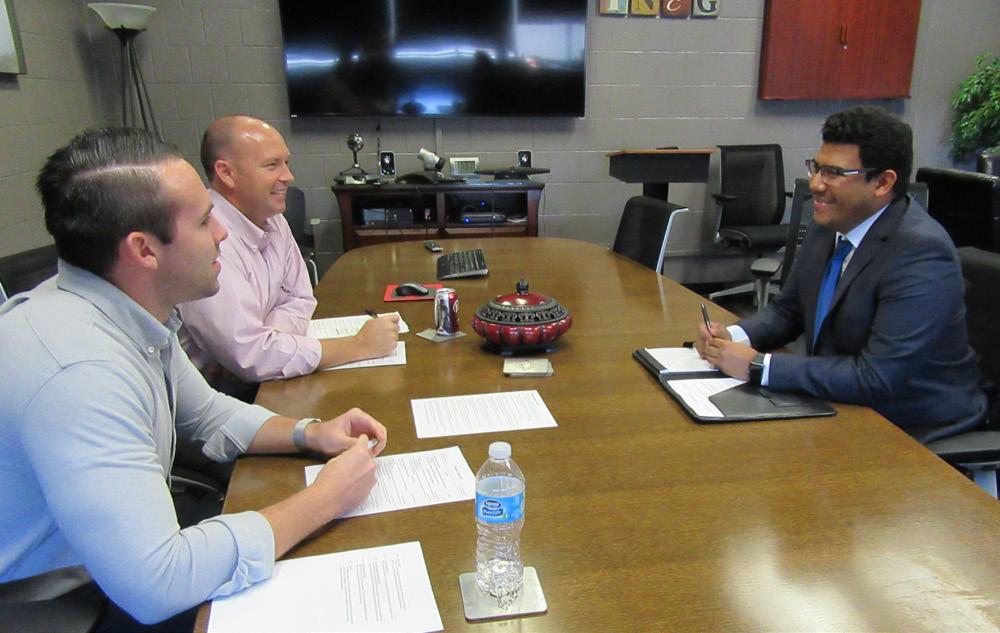


IE’s faculty and students work with corporations, governmental agencies, and other organizations to perform in-context research that provides new knowledge, tools, and insights. Your research funding supports faculty and student time associated with the project, provides valuable experience for students that prepares them to directly contribute to your organization, and leverages the expertise and resources associated with a major research institution. Our focus is on ensuring that your research funding results in a measurable return on investment to your organization. For more information, contact Dr. Ed Pohl: epohl@uark.edu
The Capstone Experience Course, provides unique opportunities for companies to partner with students to solve real-world issues companies face. The student teams work closely with the company to identify projects of interest, then work together to identify objectives and ways to achieve desired outcomes. To partner with us, please contact Dr. Ed Pohl at epohl@uark.edu
Through the Mock Interview program, sponsored by the Arkansas Academy of Industrial Engineering (AAIE), students are able to interview with actual employers to hone their interviewing skills. Interviewers come from companies that regularly recruit industrial engineers as well as AAIE members. The goal is to help prepare students so they are ready to present themselves in the best possible way at career fairs and job interviews. Contact: aaie@uark.edu
Through the Mentoring Program, IE students are provided with networking opportunities and access to industry professionals with whom they can discuss career opportunities, job expectations, and skills and strategies for professional success. Industry mentors are provided the opportunity to share their passion for their profession and help develop the next generation of leaders, while building their own coaching, communication, and leadership skills. Contact: aaie@uark.edu
Through cooperative education and internships, employers receive the benefit of working with some of the top students in our program. The students gain hands-on experience in the workforce and are able to use their newly acquired skills. Employers also find potential new employees by developing their relationship with the students. Contact: Dr. Jessica Park at jepark@uark.edu
The Industrial Engineering Faculty cannot be available for every single class during a semester. They, like all of us, have conferences to attend as well as family matters that take precedence over work at times. There are also times during a school year that bringing in a guest lecturer can add some variety in substance to a course as well as provide real world experiences that the faculty member may or may not be able to provide. For more information, contact Dr. Ed Pohl: epohl@uark.edu


Would you like to help the Department continue to provide world-class industrial engineering education and relevant, cutting-edge research? Below are some options to do just that!
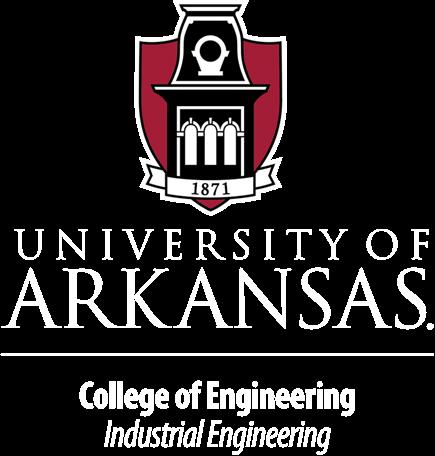
Annual Giving: Annual gifts to IE are generally unrestricted to help meet the greatest current needs of the department.

Endowments: Endowments are created to provide support into perpetuity. Examples of endowments in IE are scholarships, fellowships, and faculty chairs.
Planned Giving: Planned gifts can be as simple as a bequest (included in your estate plans). Other options include trust vehicles and annuities, which have potential to provide an income stream and significant tax benefits.